BEST IN THE BUSINESS
The Originator Choice 2025 winners

BEST IN THE BUSINESS
The Originator Choice 2025 winners
Adam Dellemonico’s four pillars of bulletproof execution
ROOKIE MOVES, RAINMAKER RESULTS A step-by-step playbook to launch your mortgage career
BETTING ON HIMSELF
Fernando Corona lost everything — then built a fast-scaling DSCR success
THE EMPATHY ADVANTAGE
How Romina Zamanpour rose to #2 at loanDepot
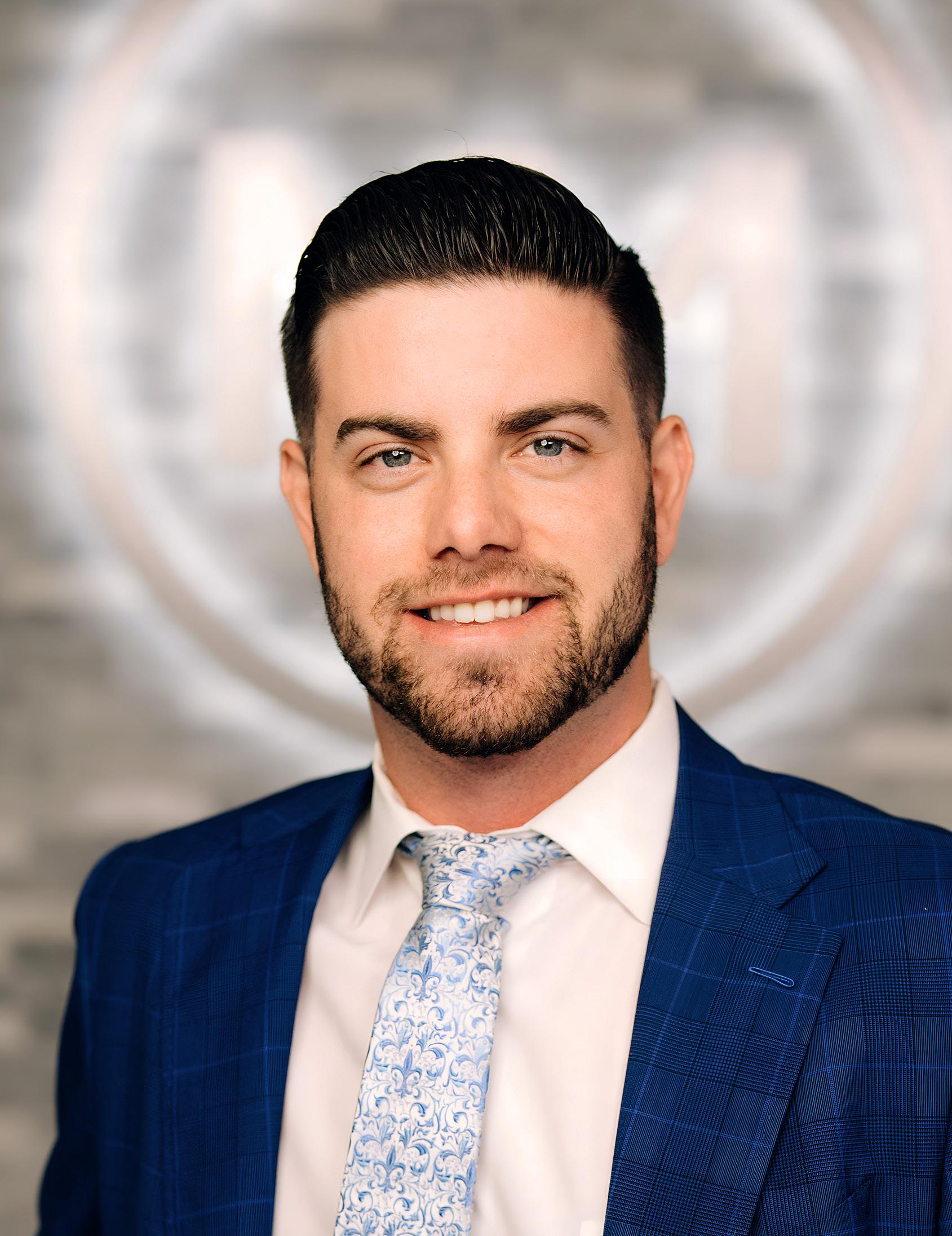













Grow your reverse mortgage business with a brand your clients trust





Entering the reverse mortgage space can feel overwhelming — that’s where Mutual of Omaha Mortgage gives you a powerful advantage.
With over a century of consumer trust, we give brokers and loan officers the confidence to grow in today’s reverse market. Whether you’re new to the channel or expanding your offering, you’ll have access to competitive products, dedicated training, and the power of a name that homeowners recognize immediately.
When you partner with Mutual of Omaha Mortgage, you’re not just building a business — you’re building it with a legacy of trust.
What We Offer:
• Trusted consumer brand backed by 100+ years of history
• Simple onboarding and education to help you get started fast
• Full suite of reverse products — including jumbo options
• A dedicated sales support team will walk you through the origination process
• Marketing support (pro-rata fair share)
Join a brand built on trust. Designed for growth. wholesale.mutualreverse.com.




Very few people grow up dreaming of becoming a mortgage loan originator. More often than not, it’s a career that finds you — whether someone in the industry saw potential in you or you stumbled into it and discovered it was a perfect fit. This isn’t just another job; for many, it’s a calling that often reveals itself once you’re already on the path.
This won’t be easy. The first few years are tough. You’ll face long hours, setbacks, rejection, and moments when you question your direction — and maybe even your life choices. However, if you persevere, this career can be one of the most rewarding there is. I’ve seen MLOs rise to the top from every background — U.S.-born or not, raised in poverty or privilege, GED or Ivy League. What matters most is your commitment. In time, you’ll help families achieve homeownership and build generational wealth, all while becoming a trusted guide in one of the most important decisions of their lives.
In this issue of Emerging LO, we’ll share the stories, plans, strategies, and the mindset of top originators to inspire you to build your career with a strong foundation. This was designed for those in the early years of their mortgage career who are seeking guidance, inspiration, and the confidence to keep going. But this isn’t just for the newbies. It’s also for seasoned professionals who never stop evolving. In this industry, the best are always learning, always adapting, and always emerging, ensuring they’re the best versions of themselves.
What truly sets top originators apart is their curiosity. They ask questions, delve into industry knowledge, and continually seek ways to better serve their clients. And beyond curiosity, they understand the importance of community. This isn’t a solo journey. Every success is built on collaboration, mentorship, and shared knowledge.

As you build your career, keep these three principles in mind:
1. Focus on actions, not just outcomes: You can’t control your prospects, but you can control how many prospects you have. Measure your efforts and the steps you take daily. Consistent actions lead to success.
2. Master your time: Everyone has the same 168 hours a week. Use them intentionally and wisely. Be ready to hire a Loan Officer Assistant as soon as you can afford it and before you actually need one.
3. Commit to continuous learning: The best originators never stop improving. Stay on top of lender guideline changes, read daily industry news, subscribe to newsletters, attend webinars and conferences, and always be curious.
The mortgage industry might have chosen you, but now it’s your turn to shape your path. Welcome to Emerging LO. Let’s get to work.

ANDREW BERMAN CEO, nmp aberman@ambizmedia.com

Vincent M. Valvo CEO, PUBLISHER, EDITOR-IN-CHIEF
Alison Valvo PRESIDENT & CHIEF OPERATING OFFICER
Andrew Berman CEO, NATIONAL MORTGAGE PROFESSIONAL
Beverly Bolnick ASSOCIATE PUBLISHER & VP OF SALES
Jennifer Ridgeway ACCOUNTING MANAGER
Andrew Brooks Baker, Kathryn Fitzpatrick, Katie Jensen, Aaron Marsh ASSOCIATE EDITORS
Meghan Golden DESIGN MANAGER
Stacy Murray, Christopher Wallace GRAPHIC DESIGN MANAGERS
Elle Muse CONTRIBUTING WRITER
Navindra Persaud DIRECTOR OF EVENTS
Melissa Pianin VP OF ORIGINATOR CONNECT NETWORK
Katherine Sala MARKETING MANAGER
Kara Colletti MARKETING ASSOCIATE
Krystina Coffey MULTIMEDIA DIRECTOR
Matthew Mullins MULTIMEDIA SPECIALIST
Courtney Valvo EVENTS COORDINATOR
Julie Carmichael PROJECT MANAGER
Kristie Woods-Lindig ONLINE ENGAGEMENT SPECIALIST




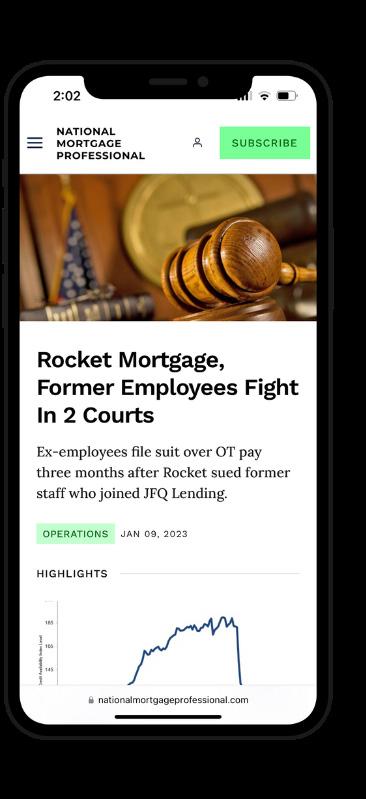


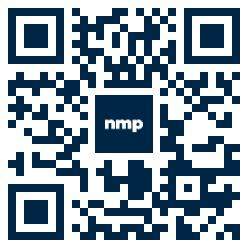
A step-by-step guide to mastering the habits, skills, and mindset you need to succeed

BY ANDREW BROOKS BAKER, ASSOCIATE EDITOR, EMERGING LO MAGAZINE
Your first 90 days as a loan officer aren’t just busy — they’re make-or-break.
In those first three months, you’ll lay the groundwork for how you prospect, how you manage your pipeline, and how you’re perceived by borrowers and partners alike. Get it right, and you’ll build momentum that can carry you through all of the challenges ahead. This isn’t about closing a dozen loans out of the gate — it’s about building the habits, skills, and confidence that will fuel a long, successful career. In this guide, we’ll break down exactly what you should focus on in Month 1, Month 2, and Month 3, so you can hit the ground running and stay a step ahead.
Your first month in the mortgage industry isn’t about closing deals — it’s about setting the stage for everything to come. Think of it like pouring the foundation for a house: if you rush it or cut corners, the entire structure will be shaky. But if you get the basics right now, you’ll be able to build something strong and enduring.
In these first 30 days, focus less on instant results and more on mastering your tools, sharpening your prospecting habits, and understanding the products you’ll be offering. Success starts with repetition, routine, and relentless curiosity.
Here’s where to put your energy:
Before you can build relationships and close loans, you need to master the tools that power your business. Your CRM (Customer Relationship Management system) and LOS (Loan Origination System) aren’t optional — they’re the engines that keep your pipeline moving. Learn how to input and track borrower information, log your calls and meetings, and keep notes that your future self will thank you for.
At the same time, take your compliance training seriously. Yes, it’s dry. Yes, it matters. Mortgage lending is one of the most heavily regulated industries in the country, and even small slipups can have big consequences. Learn what you can and can’t say, how to handle borrower information, and why documenting everything is your new best friend.
No two mortgage companies operate exactly the same way. Some have centralized processors and dedicated underwriters; others expect LOs to manage the file cradle-to-grave. Some have lightning-fast turn times,
others move more slowly. You need to understand exactly how your company handles applications, submissions, disclosures, conditions, and closings — and more importantly, who’s responsible for what at each step.
In your first month, spend time asking smart questions: Who triggers the disclosures? When is the file considered "live"? Who communicates with the borrower during underwriting? The sooner you know the internal flow, the fewer mistakes you’ll make — and the faster you’ll move.
Prospecting isn’t something you do once you “feel ready” — it’s the skill that will define your career. And it starts on Day 1. Even before you’re a product expert, even before you’re comfortable taking full apps, you can (and must) start building the muscle of reaching out.
Set daily goals: how many calls you’ll make, how many emails you’ll send, how many real estate agents, builders, or financial advisors you’ll try to meet. The numbers might feel small at first, but consistency beats intensity. Focus on planting seeds, not closing deals. Every conversation you have today sets up a closing six months from now.
It’s easy to be “busy” in your first month — tinkering with your CRM, listening to training calls, organizing your desk — but the winners are already out there making noise. Set hard, non-negotiable outreach numbers for yourself: Ten calls a day. Five new contacts a week. Two in-person meetings per week. Adjust based on your market, but commit to a number and track it ruthlessly.
Outreach isn’t about being perfect — it’s about showing up. Every voicemail you leave, every email you send, every handshake you make is a tiny brandbuilding event. Play the long game.
Success in this business doesn’t come from flashy marketing or lucky breaks — it comes from mastering the basics, showing up every day, and doing the work others aren’t willing to do.
You don’t need to reinvent the wheel every time you pick up the phone. Great LOs use scripts — and no, that doesn’t mean sounding robotic. It means having a game plan for what you want to say, how you’ll say it, and how you’ll move the conversation forward.
Practice your borrower intro call: How do you explain the loan process in 60 seconds? Practice your intro: How do you pitch value without sounding desperate? Practice your builder script: How can you offer fast pre-approvals and smooth closings? Memorize the bones of the script so you can improvise naturally. Smoothness sells.
You’re not expected to be a walking encyclopedia yet — but you are expected to be dangerous enough to answer basic borrower questions and build confidence with partners. Start with the core programs: conventional (Fannie/Freddie), FHA, VA, USDA, and jumbo loans.
Learn the major differences in guidelines. Learn who fits where. More importantly, start crafting simple, nonjargony ways to explain the options. Nobody cares about AUS findings or DTI ratios at the kitchen table — they care about what they qualify for, how much it’ll cost, and how fast you can get

them into their new home. Your ability to explain complex products simply is your secret weapon.
If Month 1 was about learning the ropes, Month 2 is about getting into the game. You’ve laid your foundation — now it’s time to start filling your pipeline and building your reputation.
This is where many new loan officers start to separate themselves. The ones who commit to daily outreach, who stay organized, and who communicate like pros will start seeing traction. The ones who wait for the phone to ring will still be “getting ready” while everyone else is getting deals.
You won’t be perfect yet — and that’s okay. Your goal this month is to stay visible, stay consistent, and build habits that will make you the first call when someone needs a mortgage.
You are officially in the lead generation business. Deals don’t just walk in the door — they’re hunted, planted,
nurtured, and earned. In your second month, you should focus on building relationships with three main sources: real estate agents, your sphere of influence, and online leads. Start with real estate agents. Visit open houses. Offer to help with preapprovals. Share market updates. Don’t ask for business immediately — ask how you can help them win more clients.
Next, work your personal sphere. Most people don’t think of calling their old college friends or soccer teammates to talk about mortgages — but that’s a huge mistake. People want to work with someone they know and trust. Make it easy for them to think of you.
Finally, work your online leads if you have them. They’re tough, but they’re opportunities. Speed and persistence are everything with internet leads — call immediately, text, email, and follow up like a machine.
Each lead source requires a slightly different approach, but the goal is the same: become top of mind.
For Real Estate Agents: Think like a partner. What do they need? Faster preapprovals? Weekly loan status updates? Co-branded marketing? Be the LO who solves problems, not adds to them.

For Your Sphere: Stay personal. Check in casually. Let people know you’re in the business without sounding like a hard sell. Share stories, milestones, wins (even small ones) on social media to stay visible.
For Online Leads: Be faster than your competitors. Five minutes can make the difference between winning the lead and losing it. Scripts matter here — you need to establish trust and value in the first 30 seconds.
Follow-up isn’t just important — it’s everything. Most new loan officers lose deals not because they don’t find leads, but because they don’t stay on top of them. Your follow-up system should be automatic and relentless.
Create simple follow-up cadences: Day 1 call, Day 3 text, Day 7 email, Day 14 check-in. Keep it professional but persistent. Assume people are busy, not disinterested. Every touchpoint is another chance to prove you’re reliable, knowledgeable, and easy to work with.
Use your CRM religiously. If it’s not in the CRM, it doesn’t exist. Build a habit now of logging every call, note, and next action. Your future pipeline — and paycheck — depend on it.
The application is your blueprint for the loan — and sloppy apps make for messy loans. Month 2 is when you must get comfortable taking full, detailed, bulletproof applications. Don’t just grab a name, a credit pull, and a paycheck stub. Dig deeper. Ask about second jobs, side hustles, upcoming job changes. Ask about alimony, child support, bonus income. Ask about gaps in employment, large deposits in bank accounts, undisclosed properties. The more you uncover upfront, the fewer surprises you (and your borrower) will face later.
Think of yourself like a detective. Your job is to paint a full, honest picture of the borrower for your underwriters — and to help your client avoid speed bumps later.
Here’s where good loan officers start to separate from great ones. Great LOs don’t just check boxes — they uncover the full story.
When you’re taking an app, train yourself to ask things like:
• “Do you expect any big changes to your income or job in the next year?”
• “Is anyone else helping you with your down payment or closing costs?”
• “Are you planning to sell your current home before buying?”
The answers to these questions will save you — or sink you — later. Better to find out today than three weeks into the process.
If Month 2 has a golden rule, it’s this: Communicate early, often, and clearly.
Set borrower expectations from the very first conversation. Tell them when they’ll hear from you. Tell them what documents you’ll need. Tell them what to expect during underwriting. A confused borrower is a panicked borrower — and panic kills deals.
The same goes for partners. Even if there’s no major update, say something. A quick “Hey, just a heads up that we’re waiting on the appraisal, everything else looks great” can buy you enormous goodwill. Silence breeds doubt. Overcommunicate and you'll earn trust that pays dividends.
By Month 3, the training wheels are officially off. You’ve learned the systems, you’ve built the habits, and you’ve started filling your pipeline. Now comes the real test: handling challenges, sharpening your instincts, and moving from "new LO" to someone who acts — and thinks — like a professional.
This month isn’t about perfection. It’s about resilience. Every problem you solve, every awkward conversation you navigate, every deal you save makes you stronger, faster, and more valuable to your clients and partners.
Here’s how to level up:
Up until now, most of your time has been spent getting applications in and building momentum. Now the real mortgage work starts. Appraisals come in low. Borrowers lose jobs mid-process. Large, unexplained bank deposits pop up three days before closing. Welcome to real-world lending.
The key to Month 3 is to stay calm and solution-focused. Don’t panic when something goes sideways. Instead, immediately assess the situation:
• What’s the problem?
• What’s the borrower’s best option?
• What alternatives exist (product switches, additional documentation, gift funds, etc.)?
1. Waiting to Prospect Until You “Feel Ready” The truth is, you’ll never feel completely ready. The best way to get better is by doing. Start making calls and building relationships from Day 1.
2. Taking Incomplete Applications Sloppy apps kill deals. Always dig deeper. Ask about job changes, gifts, large deposits — the more you uncover upfront, the smoother the process later.
3. Ghosting Borrowers and Partners Silence destroys trust. Even if there’s no major update, communicate early and often. A simple check-in can mean the difference between keeping a client or losing one.
4. Neglecting Your CRM If it’s not logged, it didn’t happen. Track every lead, every call, every note. Your CRM isn’t just a database — it’s your future income.
5. Panicking When Problems Arise Problems are part of the business. Clients will look to you for stability. Stay calm, find solutions, and communicate clearly. Your reaction matters more than the issue itself.
Communicate early with all parties involved — borrower, real estate agent, processor, underwriter. The worst thing you can do is hide and hope it fixes itself. Your reputation will be built as much on how you handle problems as how you close clean loans.
Some issues you can solve easily. Some require creativity and hustle. Some you simply have to manage expectations around.
When dealing with credit challenges, know your overlays and alternative products. Not every borrower fits a traditional box, and knowing about FHA flexibility, non-QM options, or rapid rescore strategies can save deals.

When dealing with appraisal issues, lean on your knowledge of appeal processes and comparable sales. Sometimes a renegotiation between buyer and seller is the only fix — coach your partners on how to have those conversations.
When dealing with documentation nightmares, stay patient. Borrowers often don’t realize how critical clean docs are. Walk them through exactly what’s needed, why it matters, and how quickly you need it to avoid delays.
CALM AND CARRY ON
Mortgage transactions are emotional rollercoasters for clients. If you panic, they’ll panic. If you stay calm, they’ll trust you.
One of the most valuable skills you can develop is being a steady hand in turbulent times. Use phrases like:
“Here’s what’s happening, and here’s how we’re going to handle it.”
“This isn’t unusual — I’ve seen this before. We have a plan.”
Always protect the relationship first, even if a deal blows up. Sometimes what you "save" is not the loan — it’s the trust for the next deal down the line.

The New England Mortgage Expo returns to the fabulous Mohegan Sun Resort & Casino in January 2026! With over 2,000 attendees, you won’t want to miss this opportunity to be a part of New England’s largest and most exciting mortgage event — the largest regional mortgage show in the nation. Join your peers for an exiting day of networking, product showcases, educational sessions, motivational speakers, and so much more!
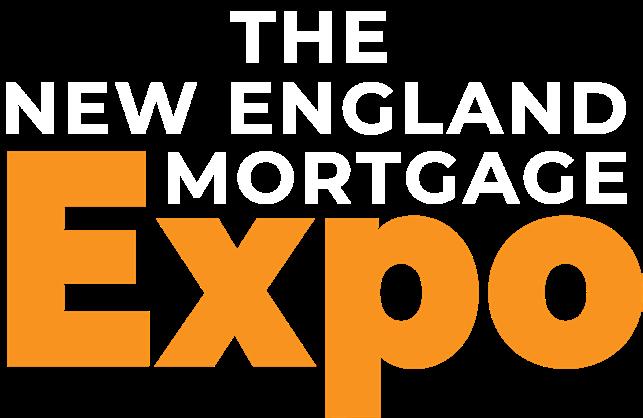






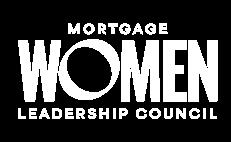


Every call you make, every borrower you help, every problem you solve is a brick in the foundation of your career.
You’ve met real estate agents, builders, and advisors. Now it’s time to solidify those relationships. Month 3 is where you move from “someone they met once” to “someone they trust to handle their clients.”
Commit to weekly touches with your top partners. A quick call. A text about rates. A shared market update article. An invite to coffee. It doesn’t have to be long — it just has to be consistent. You’re building top-of-mind awareness so when a hot lead shows up, you are the name they think of.
Even if you’re not closing loans yet, find ways to add value. Offer to host a cobranded webinar for first-time buyers. Offer to run pre-approval numbers for a new listing’s open house. Find small ways to make yourself indispensable.
If you feel awkward about staying in touch because you’re still new, flip the script. You’re offering value, not begging for business.
Touchpoints can include:
• Updates on loan programs they should know about.
• Info on buyer assistance grants in your market.
• Fast pre-approval help for their active buyers.
• Invitations to industry events or webinars.
The more you become a resource, the more irreplaceable you become.

By the end of Month 3, your greatest shift shouldn’t be in your loan count — it should be in your mindset. It’s time to start thinking like the experienced producers you admire.
Veterans ruthlessly prioritize their time. They don’t chase every cold lead. They don’t waste two hours customizing an email template. They focus on incomeproducing activities first: prospecting, applications, pipeline management, and relationship-building. Everything else gets scheduled after the main event.
Veterans constantly refine their process. Keep tweaking your scripts. Keep learning new loan products. Keep tightening your pre-approval process so that every client feels like they’re working with an experienced and skilled LO.
The best part? You’re no longer guessing. You’ve seen enough in three months to know what works. Now it’s about doubling down on the right habits — and cutting the noise.
By the end of your first 90 days, you won't know everything — and you’re not supposed to. But you should have built a solid base that puts you ahead of most new LOs who flame out early.
Here’s what success looks like at this point:
You have a daily rhythm. You’re not wondering what to do each morning. Prospecting, application intake, partner updates, and file management are part of your normal flow — not something you have to psych yourself up for.
You have a small but growing pipeline. Maybe you’re not closing a dozen loans yet, but you have active buyers in the funnel, pre-approvals in process, and solid prospects lined up. You have momentum.
You know how to take a clean application. You ask the right questions upfront. You anticipate underwriter red flags. You hand off complete files, not incomplete puzzles, to your processing and ops teams — and they notice.
You’re starting to build a personal brand. Partners are beginning to see you as reliable. Borrowers remember you as someone who communicates clearly and follows through. Your reputation is forming — and it’s working in your favor.
If you’ve built these pillars, congratulations. You’re not just surviving your first 90 days — you’re setting yourself up for long-term success in one of the most rewarding (and challenging) industries out there.
The first 90 days in the mortgage business aren’t about being perfect — they’re about building the habits that lead to greatness. Every call you make, every borrower you help, every problem you solve is a brick in the foundation of your career.
Stay consistent. Stay curious. Stay coachable. Success in this business doesn’t come from flashy marketing or lucky breaks — it comes from mastering the basics, showing up every day, and doing the work others aren’t willing to do.
Your first three months are just the beginning. Build them right, and the sky’s the limit.

How far basic principles and strategies can take any MLO


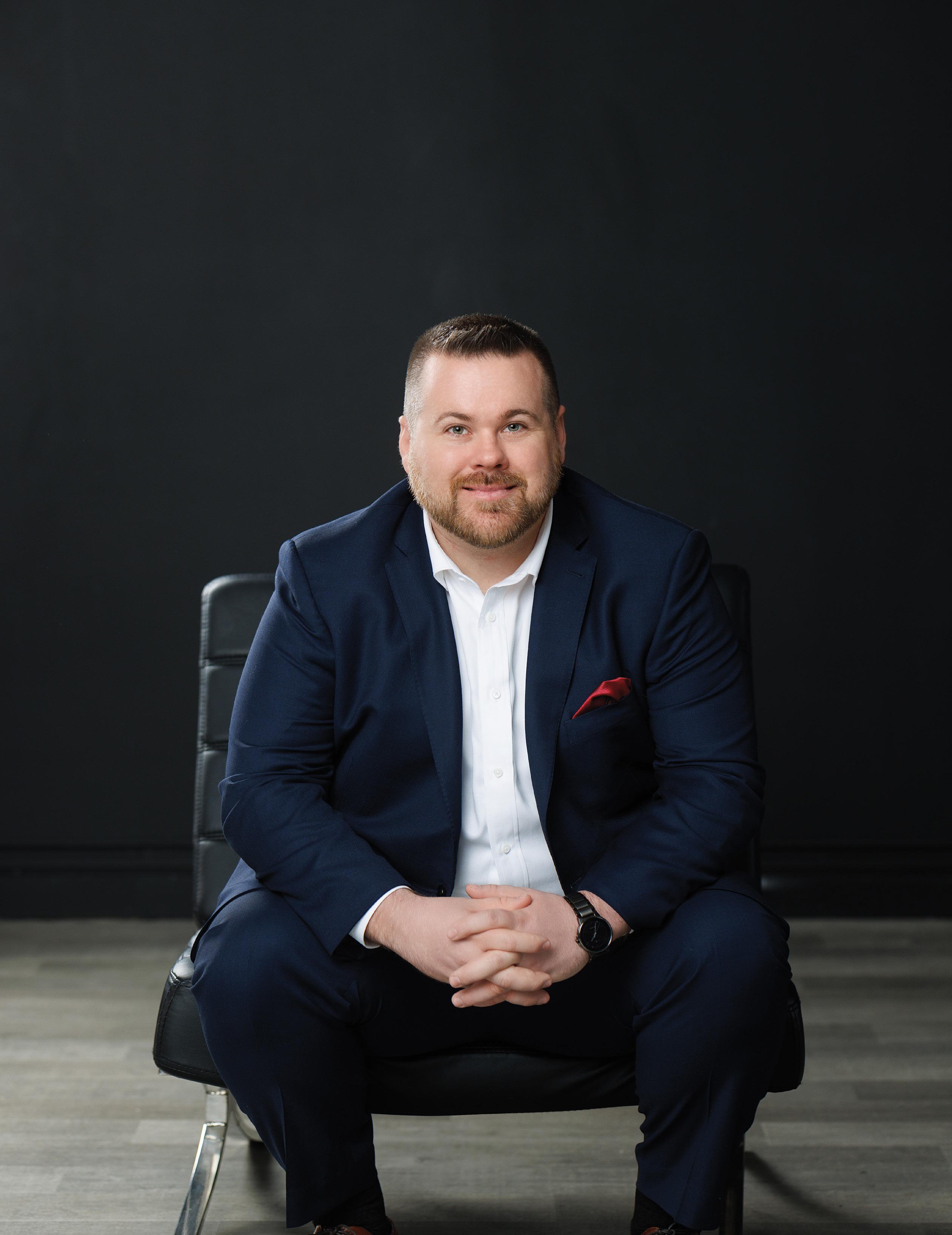

BY KATIE JENSEN | ASSOCIATE EDITOR, EMERGING LO MAGAZINE
High interest rates, low housing inventory, and mass layoffs raking through the industry are not considered a recipe for success, but could they be? For those who are pessimistic about what can be achieved in a down market, especially for new originators, meet Tony Zerwas, a Minnesota-based originator for Edge Home Finance, who churned out more loans in his first year than some originators who’ve had decades of experience.
His numbers speak for themselves: $12.35 million in loan volume and 45 units total in his first 12 months as a loan originator, from September 2022 to September 2023. His pace for closing continues to improve, accomplishing $22 million in loans and 69 units total from January 2023 to January 2024.
Now, some originators may be thinking that’s an impressive start for a newbie, so how does he do it? Inquirers call him wanting to know whether he buys leads or uses some secret technique to lure in their business.
“No one believes me when I say this,” Zerwas said. “I actually have people argue with me. Everyone’s like, ‘No, really, what are you doing? Are you buying leads?’ No, just go on my Facebook. That is what I’m doing.”
However, Zerwas insists that he follows a simple blueprint for success. He worked as a loan officer assistant (LOA) under a mentor for only a month, focusing mainly on learning the loan process. He then taught himself to use social media as a marketing and lead-generation tool. It also didn’t take long for Zerwas to find his own niche in doing VA loans, which allowed him to build a positive reputation among a community of borrowers. The rest happened naturally, with him setting up his own brand, Leverage Lending Team.
It may be hard for some originators to believe basic strategies, like using social media, will continue working in a tough market. But there’s no special product, technology, or lead generation tactic that propelled Zerwas to reach a higher volume. Nothing but a few skills in his arsenal and a simple blueprint that can help any originator’s business grow.
Though it’s not the same kind of fighting Zerwas would see during his former career as a police officer, he can attest that a fair amount of fighting happens during the mortgage process before closing.
Admittedly, Zerwas was surprised to learn how intricate and complex the mortgage process was, as most borrowers would be if they stepped behind the curtain and onto the back stage. But Zerwas learned that keeping that curtain open is a huge part of the job to make the client believe that this process is going to be simple.
“I had no idea, before working in this job, how
many times a transaction goes awry without the client knowing,” Zerwas said. “I think a lot of folks think that we get the application, we get a contract, we click a couple buttons, and onto the next one. And that’s not the case.”
After leaving his police career, Zerwas was recommended by an acquaintance to join Edge Home Finance. He soaked up as much knowledge as possible, starting out as a loan officer assistant to an originator who acted as his mentor and was provided additional resources for training by Edge.
If anyone were to follow Zerwas’s blueprint, they’d start by applying to companies that offer a strong training program and value new talent.
“I don’t think that I would’ve had this success without Edge’s support,” Zerwas said. “We have a culture here that I really enjoy that’s built on giver’s gain and helping each other out.”
Zerwas has excessive drive and determination. Ever since childhood, he dreamt of becoming a police officer. Unlike how many of those stories end, he eventually achieved a position in law enforcement in 2015 while serving in the Air National Guard between 2007 and 2019.
“I got three degrees, up to a master’s degree, all in public safety and law enforcement. I thought that that’s what was going to be my career,” Zerwas said.
It was for a while, but not one that would sustain his interest throughout most of his life, as he once thought.
In 2020, Zerwas was terminated from the Wyoming (Minnesota) Police Department for a policy violation, which he phrased as “a split-second decision.” Zerwas recounted the situation, saying that the suspect he just arrested had jerked away from him, leading him to believe the suspect was resisting or looking to

fight. Zerwas quickly took him down.
“Knowing the end result, I would have done it differently,” Zerwas said. “I always prided myself on how I treated people.”
He went to work for a separate police department in 2021, but said he had already lost his passion for the field. He desired a career that would appreciate people who were innovative, independent, and willing to go the extra mile.
“Looking back, it seems to me like government work doesn’t really appreciate innovation or putting in that extra mile,” Zerwas said. “My supervisors were very appreciative of the work, but the entity as a whole just, you know, it didn’t seem like the hard work mattered.”
Following his departure from law enforcement, Zerwas was somewhat lost professionally. He tried to apprentice as an electrician, but the physical aspect was too much for some pre-existing injuries. He also didn’t appreciate slower-paced work, which was his issue as an assistant superintendent for a country club.
“After experiencing everything and working for the government for so long, it just seemed like effort didn’t equal the result, and it was time to bet on myself,” Zerwas said.
Zerwas loves the rush of adrenaline in trying to get a deal closed.
“Because let’s face it, there’s gonna be stress involved no matter how easy the transaction is. I think I’m good at managing that stress by trying to anticipate pain points and eliminate them for the client,” Zerwas said.
Tom Ahles, chief growth officer for Edge Home Finance, interviewed Zerwas, along with hundreds of others for the job. Over the course of a year, Edge Home grew from a staff of roughly 450 employees to 1,100. Asked whether he could tell during an interview whether someone would excel at originating or not, he said there really isn’t a tell.
“We hired a lot of people, some of whom I thought would be great that weren’t, some whom I didn’t think would be outstanding that are outstanding,” Ahles said. “He just works hard. He’s smart, and he cares.”
Seasoned originators often say it’s better to discover a niche organically than seek one out. Being a veteran of the Air National Guard naturally led Zerwas to working with veterans and honing in on VA loans.
When Zerwas went to purchase his first home using a VA loan, he remembers being shot down by two lenders before finding a third that was well-versed in that product and got him through to closing.
“When I decided to get into mortgage, I remembered that and thought to myself, ‘How many veterans are being told no, and [are] just giving up?’ ” Zerwas said.
One transaction in particular that Zerwas highlighted as his favorite was for a fellow veteran based in Minnesota. The borrower was meant to close on a house in two weeks before leaving for an overseas deployment. But the borrower’s original lender announced at the last minute that they were no longer lending in that state, leaving him and his family high and dry.
“There was a lot riding on that,” Zerwas said. “His wife and kids were going to be homeless. Plus, everything that could have gone wrong to make this work went wrong. But, you know, we really grouped together, and we got it done.”
Following that, Zerwas began developing a reputation for working with veterans.
“I had a client — I think it was in October we closed — and that listing agent specifically said that they selected our offer because my name was on the paper,” Zerwas said. “They know that if my name’s on the paper, it’s gonna close.”
Besides sharing military experience with his borrowers, his skills are
especially appreciated within that community. Because some VA borrowers may be deploying soon or are currently deployed, they’re not always accessible. Zerwas believes that’s why veterans appreciate speed, efficiency, and having an originator who is competent enough to trust.
Creating an independent brand is seen more as an option for overachievers than a necessity, except in Zerwas’s case. For him, it was to avoid confusion with another mortgage originator who had the same first, middle, and last name, lived just a half hour away, and worked for Guaranteed Rate.
“If anyone tries to Google me to use my services, you know, he’s been doing this for like 10 years, so he’s gonna get my leads. So I figured if I branded myself this way, people would be able to find me more directly,” Zerwas said. It’s a bizarre coincidence and likely the most unique reason for starting one’s own brand, but it forced Zerwas to take that extra step, thereby separating himself from not only his doppelganger but from every other originator in his area. And like his approach to social media, his vision for the brand, Leverage Lending Team, was plain and simple.
The website is neatly formatted and easy to navigate with his picture, name, NMLS number, and contact information all laid out on the homepage as the first thing people see when they click on his site.
His best assets and his niche for VA loans are both highlighted on his site as well. On the homepage of his website is a quote from a customer’s five-star review saying, “Great Mortgage broker! Has a large presence with VA buyers,” while another emphasizes his best skills, saying he is “very informative” and “makes the mortgage process seamless.”
“I just knew vision-wise I wanted to convey to people that I am here to be a resource and be

helpful. And anything that comes from that is great,” Zerwas said. His message is pretty cut and dry, much like how borrowers want their mortgage process to be.
As for his advice to other originators just entering the industry: “Before you look for training and before you look for mentorships, look within. No one can teach drive, no one can teach curiosity. Those things are very important — those are the folks who are gonna be successful.”
Other than his determined attitude, Zerwas’s steps in learning and developing his skills can also be used as a basic formula for anyone starting out as an originator.
Regarding what originators need to learn first, Zerwas said it depends on the person and what skills they already have in their arsenal. By figuring out which skills you are already proficient at or have an instinct for, you will not have to waste money or time on taking classes dedicated to those topics.
For Zerwas, that skill was using social media to generate leads and promote his business. Since he was already active on Facebook before becoming an originator, he felt comfortable enough to figure out how to use it for his business, which ended up saving him money otherwise spent on social media mastery classes.
“People call and ask how are you doing this business? And I tell them to add me on Facebook and watch what I post because that’s all I do,” Zerwas said. “I add Realtors on Facebook and I post content.”

His Facebook account has 4,300 followers, which he said is enough to get him all the referral connections and clients he has today. Although people often don’t believe him and will accuse him of buying leads, Zerwas firmly stands by the fact he does not make cold calls and rarely sends out cold messages.
“Obviously, I post a good amount of educational content on mortgages, but I don’t post only mortgage-related stuff on my socials. I talk more about my family,” Zerwas said. “I think a lot of people overthink social media, and they try to make the perfect post, graphic, or video. Just make the post. It’s not gonna be perfect.”
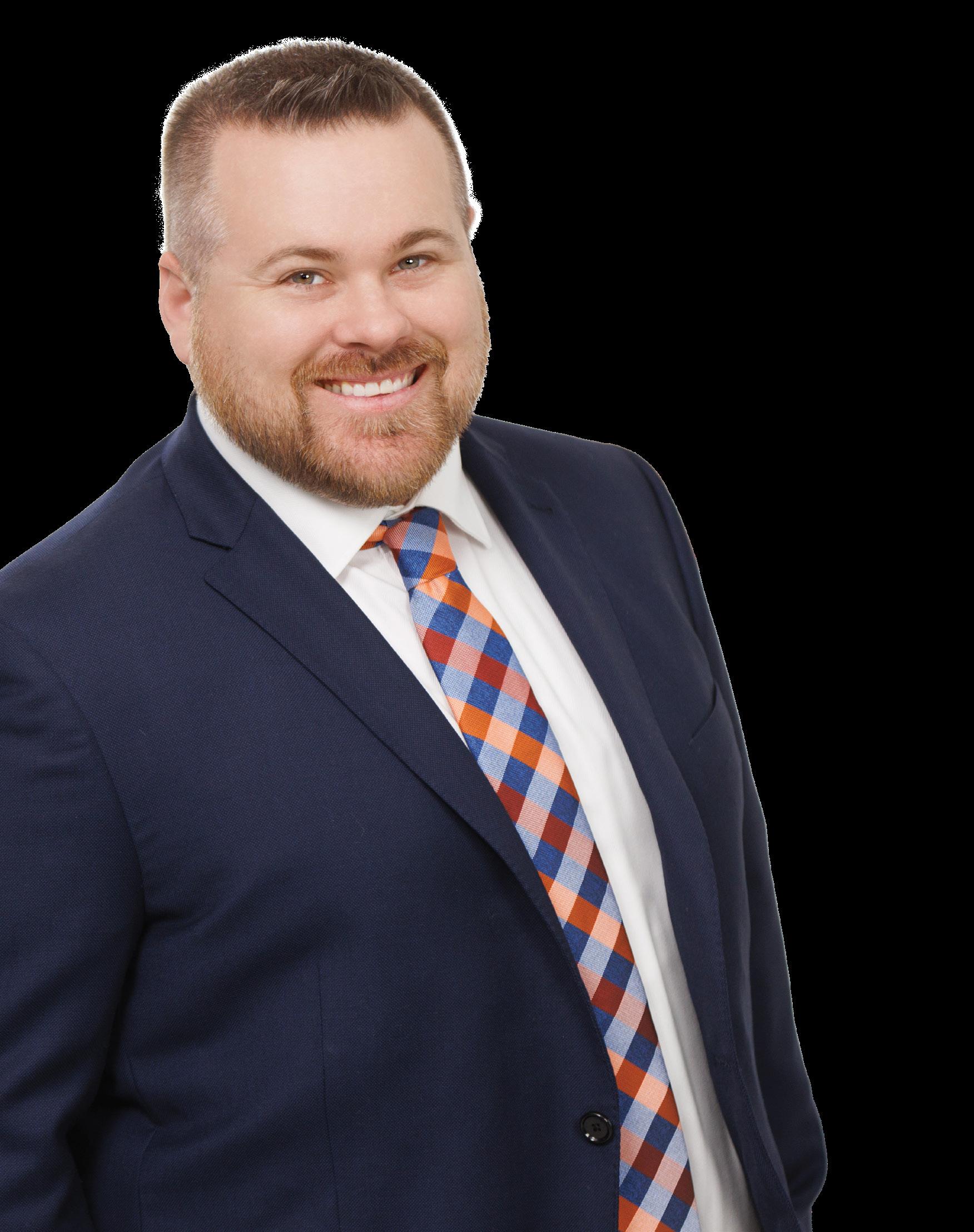
As for what training he did need, Zerwas said the most helpful course for new originators to take is on the complete loan process, where he was able to learn the minutiae of structuring a loan. He said that being an expert in how the loan process and products work — which are the basics every originator should know — is what allowed Zerwas to sound competent and therefore trustworthy to clients and referral partners.
“If you don’t structure your file correctly and you get approved eligible findings … the deal’s dead,” he said. “So without working in the industry, you don’t know what you don’t know.”

“I think a lot of people overthink social media, and they try to make the perfect post, graphic, or video. Just make the post. It’s not gonna be perfect.”
> Tony Zerwas































































The Originator Choice Award survey gives professionals in the mortgage industry the opportunity to voice their opinions and celebrate the companies that have consistently stood out as the best in the business. It’s a platform for those on the front lines of the industry to share their experiences, preferences, and recommendations.






National Mortgage Professional Magazine reached out to its extensive audience across the nation at shows in San Diego and Las Vegas, as well as online, to pose this question: who are the best in the business? It was all for this year’s Originator Choice Awards.














In the dynamic landscape of the mortgage industry, excellence and innovation are the cornerstones of success. Originators, brokers, and mortgage professionals play pivotal roles in connecting future and current homeowners with the right lenders and services that can turn their needs into reality.





















Members of the industry cast their votes for the lenders and services that have exceeded their expectations, providing unparalleled support and value throughout the home financing process. This survey is not only a recognition of excellence but also a valuable resource for those looking to partner with the most reliable and customer-focused entities in the industry.






















Thank you for joining us in celebrating excellence in mortgage services by participating in this year’s Originator Choice Award survey. Your voice mattered, and your votes contributed to the recognition of the industry’s top performers. Together, let’s honor those who clearly strive for excellence in the ever-evolving world of mortgages.
























States Licensed: All 50 U.S. States
Why originators choose UWM:

“Reps are great to work with”
“Very efficient process”

“They stay in contact with me so much more than any of the others”
States Licensed: All 50 U.S. States
Why originators choose Rocket Pro:





“Rocket Pro has tirelessly worked to support the Wholesale Broker industry. They're the best!”
“The best customer service”
“Rocket is dependable, fast and fair to work with”





States Licensed: All 50 U.S. States


States Licensed: All 50 U.S. States
Why originators choose UWM:
“They have the best rates on FHA and VA typically” “Handles the appraisal and underwriting very well”
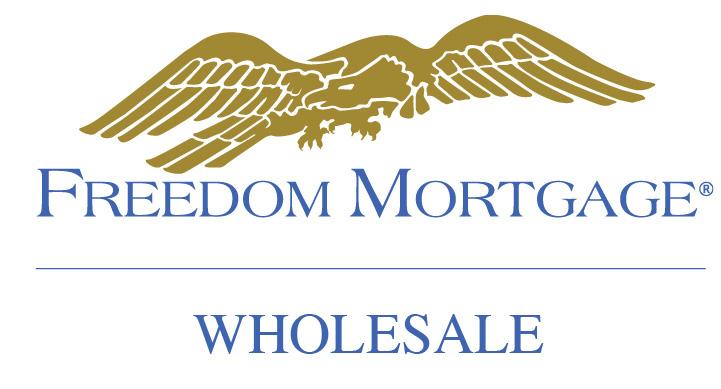
States Licensed: All 50 U.S. States
Why originators choose Freedom Mortgage Wholesale: “Freedom offers the best rates”
States Licensed: All 50 U.S. States
Why originators choose Rocket Pro: “Rocket is dependable, fast and fair to work with”
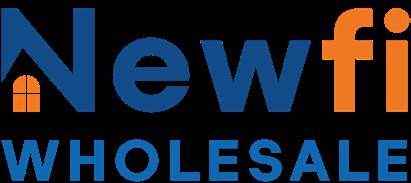
States Licensed: AL, AK, AZ, AR, CA, CO, CT, DE, DC, FL, GA, HI, ID, IL, IN, IA, KS, KY, LA, ME, MD, MA, MN, MS, MO, MT, NE, NV, NH, NJ, NM, NC, ND, OH, OK, OR, PA, RI, SC, TN, TX, UT, VT, VA, WA, WV WI, WY
Why originators choose NewFI Wholesale:
"Debra Steer is an amazing AE"

States Licensed: AL, AK, AZ, AR, CA, CO, CT, DE, DC, FL, GA, HI, ID, IL, IN, IA, KS, KY, LA, ME, MD, MI, MN, MS, MO, MT, NE, NV, NH, NJ, NM, NC, ND, OH, OK, OR, PA, RI, SC, SD, TN, TX, UT, VT, VA, WA, WV, WI, WY
Why originators choose Kind Lending:
“Kindest team!! Great work Alesandra"
“Great Lender and AE!!"
“Like your name, you have kind staff"

States Licensed: AL, AK, AZ, AR, CA, CO, CT, DC, DE, FL, GA, HI, ID, IL, IN, IA, KS, KY LA, ME, MD, MA, MI, MN, MS, MT, NE, NV, NH, NJ, NM, NC, ND, OH, OK, OR, PA, RI, SC, SD, TN, TX, UT, VT, VA, WA, WI, WY

ARIVE, San Ramon, CA

LendingPad, McLean, VA

Bonzo (by MMI), Cottonwood Heights, UT

GoHighLevel, Dallas TX
Why originators choose GoHighLevel “I know it can get very in depth”

Calyx Point, Dallas, TX
Why originators choose Calyx Point: “System is good”
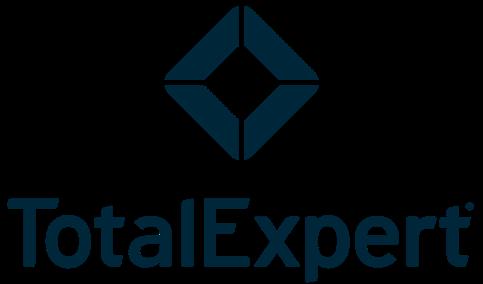
Total Expert, Minneapolis, MN
Why originators choose Total Expert: “Good system”

Why originators choose ARIVE:
“Great feedback from clients on the ease of use”


Why originators choose nCino:
“Very well designed CRM. Wish they had dialer and Bonzo integrations”
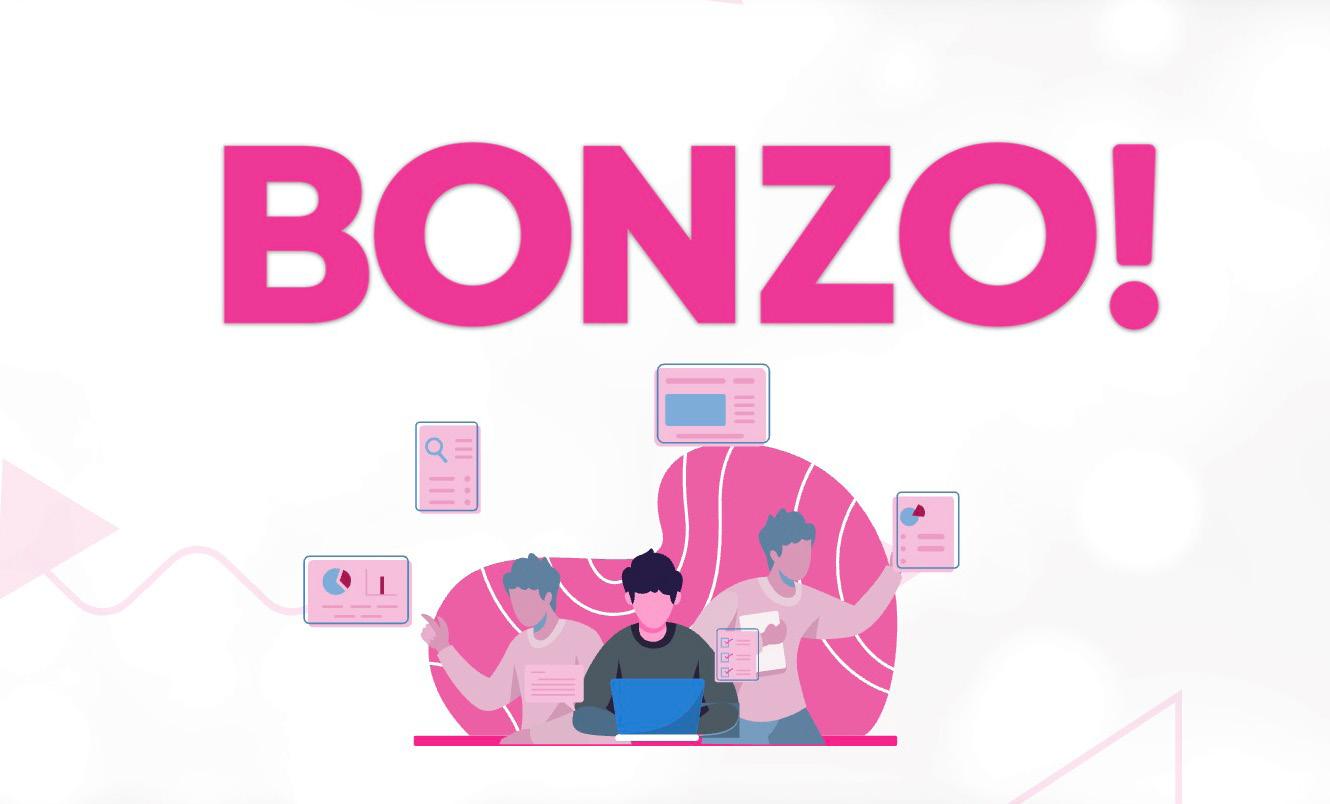
Trusted by Originators Nationwide, Bonzo’s Powerful CRM and Conversation Software Earns Industry-Wide Recognition by National Mortgage Professional
We’re thrilled to share that Bonzo (by MMI) has been recognized in the 2025 Originator Choice Awards, earning a top spot in the CRM technology category. This award, voted on by mortgage professionals across the country, is a meaningful reflection of the value Bonzo delivers to originators every day.
At Bonzo, we’ve reimagined what a CRM can be. In an industry where manual follow-ups and disconnected systems are still the norm, Bonzo stands out as a powerful, AI-driven engagement platform built specifically for mortgage professionals. Our goal has always been simple: help originators connect more effectively, follow up smarter, and convert leads faster—with less effort.
Bonzo enables teams to automate email, text, and voice communications based on real-time borrower behavior, delivering highly personalized outreach at scale. The result? Stronger relationships, streamlined workflows, and more closed loans—without the busywork.
But what truly sets Bonzo apart is how it fits into a larger, integrated solution. As the engagement engine of a unified mortgage technology platform that includes MMI and MonitorBase, Bonzo helps lenders turn insight into action. MMI surfaces opportunity through rich market and referral data. MonitorBase identifies borrowers most likely to transact. Bonzo activates that intelligence— creating timely, relevant conversations that drive growth.
We’re incredibly grateful to our partners and users for this recognition. Your trust, feedback, and continued support inspire everything we do. And to the originators, brokers, and teams who have embraced Bonzo—thank you for letting us be part of your success.
We’re just getting started.
what happens
BY KATHRYN FITZPATRICK | ASSOCIATE EDITOR, EMERGING LO MAGAZINE
RRomina Zamanpour walked into loanDepot in late 2021 without lending experience and immediately blew past every benchmark. In her first month on the job, she closed $1,607,400 in loans. In the first year, her volume was sitting at 230 units.
Her numbers on Modex show that within 12 months she was on par with, or outpacing, branch managers and LOs with ten, sometimes fifteen years of experience. And while she was out running circles around more seasoned veterans who barely knew her name, she was quietly building a reputation that couldn’t be ignored.
In just three years in the mortgage business, Zamanpour has swiftly risen through the ranks in loanDepot’s consumer direct channel to become one of the company’s leading loan officers. With 224 loans closed in 2024, and an average monthly volume of $5,107,706 (per Modex), she is now consumer direct’s number two lender. And if you ask her how she’s done it, her answer is straightforward: “You can do hard things.”
Those five words, first spoken during an acceptance speech at a loanDepot awards ceremony, have since become Zamanpour’s motto, something she’s known for saying on the sales floor. It’s not just a fun slogan, though; it’s a philosophy shaped by her upbringing as the daughter of Iranian immigrants.

Zamanpour’s parents immigrated to the United States in 2000, bringing along three daughters and little English. Education was non-negotiable in her family, and as such, her older sisters pursued traditionally prestigious careers: one became a doctor, the other a lawyer.
Zamanpour decided to enroll at UC Irvine and received a degree in psychology and business. She wanted to
make Superbowl ads, construct the next big marketing sensation like Wendy’s “Where’s the Beef?” She ended up in adtech, though, business-to-business work advising companies on how to make the most out of a dollar.
“Adtech was a natural progression. It mixes business. It mixes technology. I was like, this is perfect.” Yet, even though the work was “impactful,” she quickly realized it could never be a long term career for her.
“Sure, it had an impact on the consumer, but it wasn’t a direct human to human connection for me and that’s where it lacked,” she explains. But with high pressure from her parents to squeeze every ounce from her education and build a prestigious career, Zamanpour’s pivot to lending was a plot twist no one in her family saw coming.
“In a very thick Persian accent, they’d be like, ‘What do you mean?’” she recalls. “This isn’t anything you went to school for.” In a bid to reassure them, she explained that she was a “numbers doctor,” helping clients understand the mortgage process the way a physician explains a diagnosis. But her parents still weren’t sure.
“It’s nothing against the mortgage industry,” she says. “But to have this job, you don’t need a college degree. You don’t need an MBA. You don’t need a Ph.D.”
Today though, as Zamanpour has racked up numerous achievements — from being named loanDepot’s No. 2 originator in Direct Lending to earning a spot at the company’s prestigious Chairman’s Elite ceremony — her parents have come to understand that her work is impactful. Even if it doesn’t align with their conventional definition of success, they see how meaningful it is in ways they hadn’t anticipated. “I feel like I have an important job because I play an important role in people’s lives,” she says.
She adds that they also refer her to everyone they know, from close friends to hairdressers. “My parents have made a complete 180 … before it was just this gap of

not knowing what the job entails, and the job lacking the prestige, I guess, or the job lacking the kind of glamour of, oh, you’re a hotshot Ph.D. or you’re a hotshot MBA.”
But before her parents came around, Zamanpour had to start from scratch, and prove herself in an industry she knew almost nothing about.
Zamanpour dove into the mortgage field blind. In fact, she jokes that before starting at loanDepot, the only thing she knew about mortgages was that the word had “two G’s.” But what she lacked in industry knowledge, she made up for in self-discipline.
“I just put my head down and I work,” she says. “I compete with me. So if I’m not happy with the work that I did today, it doesn’t matter what my counterparts did, whether that was better or worse than me.”
Alex Madonna, EVP of Direct Lending at loanDepot, noticed her potential early on. Having worked in the mortgage industry for 27 years, 16 of which have been at loanDepot, he’s seen plenty of talented loan officers come and go, but Zamanpour stands out.
“She’s always been a leader amongst people regardless of title and job description,” he says. “I mean, just her level of seriousness, competitiveness, and attention to detail from the very early stages … she’s always been at the top.” He adds that she’s got a natural instinct for taking charge of a situation, describing her as “fearless.”
This fearlessness, Zamanpour says, largely stems from witnessing her mother’s resilience in adapting to a new country. While she hasn’t had a defined ‘mortgage mentor,’ in the industry, necessarily, seeing her mother overcome significant challenges to create stability for the family profoundly shaped her perspective.
“Work is not hard,” she asserts. “My mom went back to school without knowing English. She’s now a radiologist. Seeing her overcome challenges, I don’t think

anything is too hard.” This perspective not only fuels her work ethic but deeply informs how she interacts with her clients.
Empathy is central to her approach. “Every loan has a story,” she emphasizes. “We’ve all been through grief, loss, heartache, troubled times. Work is the least of our worries. If we put our heads down, there’s so much we can accomplish.”
That mindset shapes every call she takes. Rather than rushing through transactions, she takes meticulous notes, invests time in understanding each person’s circumstances, and holding her business interactions to the golden rule.
“I’m like, how would I want someone to speak to my mom, to my sister, to my grandfather on the phone if they were helping them?” she says. “How would I want someone to talk to me if they were helping me?” Her colleagues refer to her clients as “sticky,” meaning they remain loyal and often return for future business.
“She just has this cycle of customers constantly wanting to do business with her because of how well she treats them,”
Madonna says. “She very much cares for the outcome of every single loan. She advocates for every customer. People constantly want to do business with her.”
In the consumer direct channel, the way she connects with a client sets her apart. Consumer direct lending, in contrast to retail, isn’t client-facing, so lenders don’t have the opportunity to interact one-on-one, or the benefit of a local referral. It is impressive, then, that Zamanpour has managed to build lasting, trust-based relationships entirely over the phone, often beginning cold.
“They don’t leave me even if it’s like, ‘Hey, we have better pricing or we have this or so and so said this.’” Zamanpour adds. “It’s like I’m a trusted adviser if anything, that they call and they’re like, ‘Hey, this is what’s happening. What do you think? What are your thoughts?’ So, I feel like a lot of my deals are very, very sticky or the connection is very good just because of how the customer is treated and taken care of up front.”
Zamanpour’s meticulous attention to detail allows her to build continuity in
relationships that might otherwise be fleeting in a high-volume, phone-based environment. She explains that taking notes and listening to clients allows her to anticipate their needs and follow up with relevant advice, even months down the line.
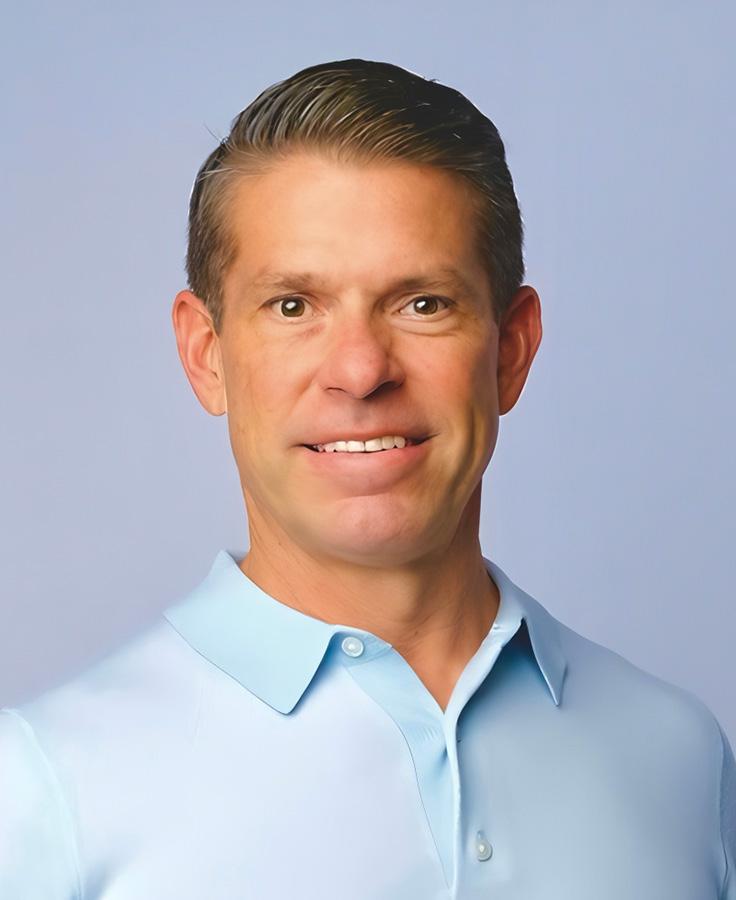
Alex Madonna EVP of Direct Lending at loanDepot
“A lot of my business comes from people who I connect with that don’t qualify today,” she says. “But instead of just hanging up, it’s about delving into their story, figuring out what they need to do, and setting a realistic timeline. I set calendar reminders, and I’m touching base with that person based on when they’ll be able to accomplish what they need.”
Zamanpour’s effectiveness isn’t built on high-pressure tactics, but the way she meets customers where they are. That sincerity has made her particularly adept at handling tough conversations, which is vital, particularly when interest rates are so high.
One in particular stands out for her.
“I would say the loan that I did that kind of puts everything into perspective for me, that I think about often, was a couple that I had helped in Texas,” she recalls. Their son, 21, had recently gotten
married and was expecting a baby with his new wife when he unexpectedly passed from COVID.
The tragedy unfolded quickly. After their son’s death, his grieving parents made the decision to take in their daughter-in-law and soon-to-be-born grandchild. But doing so meant reshaping their financial future.
“So baby’s born, their son is now gone, and they take in the daughter-in-law. They were actually one of the scenarios of someone giving up a 2% rate and their new rate was 5.99%, I remember it clear as day.”
It was a steep jump — especially in a market where most borrowers cling tightly to ultra-low pandemic-era rates. But for this family, the situation left them with few options.
“They went from a rate of 2% to 5.99% because they had to take out cash to be able to now support this baby and their daughter-in-law [because] of their son passing.”
Despite the emotional toll of such situations, Zamanpour believes these moments are where her work matters most. “I remember having to reel in my own emotions,” she says. “This was a call I took very late. I was at the office till like 8 or 9 p.m., and it was a Texas loan, so it was even later for them ... but just making sure that we got it done and we had help.”
She got it done. And for that family, she became more than just a loan officer.
“She still calls me and texts me, and she still refers to me as her angel,” Zamanpour says. “You know, it’s not a fun transaction to go through, to help someone through that, but the customer definitely will not forget you. And I don’t forget the customer.”
Although Zamanpour has seen massive success in lending so far, she has bigger goals; in her words, she wants to become “Romina 2.0.” This is, after all, only the beginning of her career.
“I’m licensed in 31 states now, but we’ll make it 50 soon,” Zamanpour says.
Expanding her licensing to all 50 states isn’t just about ticking off boxes,
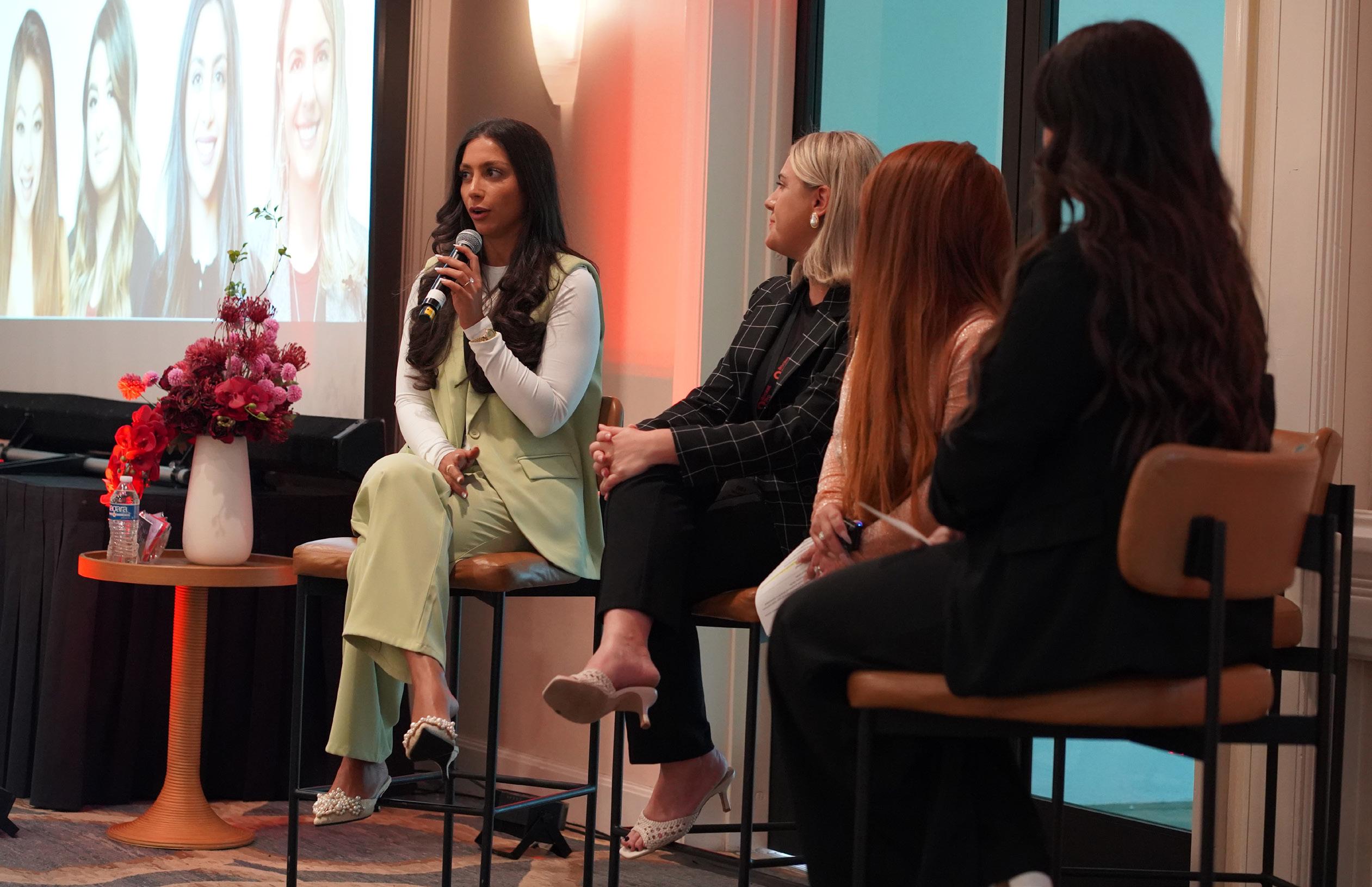
however; it’s about increasing her ability to connect with clients nationwide.
By being licensed in every state, she would have access to a broader pool of potential clients, allowing her to diversify her business and strengthen her presence in markets she hasn’t yet reached. It also means she can build deeper connections with realtors and other referral partners across the country, setting herself up as a go-to resource regardless of the borrower’s location.
She also wants to complete more home purchases. Unlike refinances, which are often driven by interest rates, purchase loans are more dependent on market dynamics and personal milestones. “Right now, most of my clientele are refinance or cash out or equity. I would love to start doing a bit more purchases,” she says. “And I think that’ll happen naturally as the market shifts and interest rates, God willing, come down a little bit.”
For Zamanpour, the pivot to purchase
loans represents more than just a business strategy; it’s a way to stay connected to her clients at key life moments, from first homes to investment properties.
As she sets her sights on expanding her reach and diversifying her client base, her focus remains as unwavering as ever. Though competitive by nature, she says that the only person she worries about beating is herself.
“For me, again, what success looks like to me these days is, am I better than who I was yesterday? So, it’s really just me versus me. That is the only competition that I need to compete with, just to be the better version of myself.”
Her advice to new loan officers reflects that philosophy: success in the mortgage industry demands resilience. “If you can stay mentally tough, you can navigate anything,” she says.
“For anyone that’s either a veteran
in the industry, new to the industry, it’s all in between the ears. We cannot control the market. So, interest rates are completely out of our control. What are the controllables that we do have? I can control my thoughts. I can control my actions. I can control the way that I treat my customer.”
Zamanpour’s ability to stay focused and resilient, no matter the circumstances, is a lesson she’s carried forward from her upbringing. Her mother’s unwavering determination to rebuild a life in a new country taught her that setbacks are temporary and hard work is nonnegotiable. It’s a philosophy Zamanpour channels into every conversation with her clients, every loan she touches, and every new state she sets her sights on.
As she works to expand her reach and refine her approach, Zamanpour remains focused on what she’s learned along the way. Hard things aren’t just possible; they’re worth doing.

BY KATIE JENSEN | ASSOCIATE EDITOR, EMERGING LO MAGAZINE
BBefore Matthew Healy became a smooth-talking, suit-andtie-wearing mortgage loan originator, he was a fast-talking sous chef for a seaside pizzeria, Vic’s and Angelo’s, a hot spot for tourists in Delray Beach, Florida.
Surrounded by blazing stove ovens that radiate pungent smells of fresh basil and garlic while orders are being shouted, the cooks are constantly moving, calling out the occasional “Behind!” as they carry past a sizzling hot plate. To the untrained eye, the kitchen seems like a hostile, chaotic environment, especially in the midst of a dinner rush. But the same could be said about the sales floor of a mortgage company during a refinance surge.
Transitioning into a finance role from the culinary world has its challenges, but with his customer service background, Healy already understood one vital principle: Never let the customer see you sweat.
The first challenge Healy faced as a newly licensed originator more than a decade ago was developing a book of business. Having no clue on how to start generating leads, Healy first turned to cold calling real estate brokerages in states he was licensed. But he was disappointed to find how difficult it was, even as an extroverted people-person, chatting to people on the phone.
“I used to call real estate offices in Florida, Louisiana, and Texas,” Healy said, adding that he wouldn’t have to worry about running into those agents if he ended up embarrassing himself — which happened frequently among those first few calls.
“If I screwed up or said something wrong, like, ‘Hey, my name's Matt. I work for… oh God’ — and then hang up the phone. I would never see those real estate agents ever again because in New York, [or] specifically on Long Island, this industry is very small,” Healy said. “So you will see these same people at networking events. And I don't wanna be noted as that guy, [like] ‘Oh, look, there's that loan officer, that bumbling idiot who tried to call me.’ You know? I wanted it to sound confident.”
Lucky for Healy, he was able to secure a few solid connections with out-of-state agents, then applied his newfound knowledge to generating leads and referral partners face-to-face.
“A wise man once told me that the money’s not in the office,” Healy said. “The money's on the street and you gotta go get your money.”
There are plenty of ways originators can generate leads and carry a borrower to closing, but they can be boiled down to two main approaches. The “boots-onthe-ground” method involves walking up to people on the street or at a real estate broker’s office. Healy, who found his groove with this approach, now generates most of his leads through referrals, but started out by visiting Realtor’s offices, hosting first-time homebuying seminars, and attending networking events.
The second method? Cold calling. It’s not hard to understand the appeal: larger retail lenders can offer a bit more stability for new originators who are more comfortable working for a company that provides leads.
“Anybody who’s trying to get into the business, I would say go with the call center model. I think it's a great way to put the training wheels on and learn how to ride the bike,”


said Nick Grobnagger, who is now the co-owner of a broker shop, Green Home Loans, with his partner Reggie Green.
In 2009, he joined Rocket Mortgage, formerly known as Quicken Loans, as one of their call center loan officers.
Prior to working in a call center, Grobnagger admits his career wasn’t nearly as stable. He entered the industry as a mortgage banker in 2005, and spent the first five years of his career working for various subprime lenders, which “kept on getting shut down” he recalled.
By the time 2009 rolled around, he had worked for five different lenders where either “this company shut down, or this one got bought out by another company,” he said, forcing him to recognize, “I just needed to get to a spot where I had stability.”
But Grobnagger achieved more than he could have imagined as a cold-calling loan officer. For nearly a decade, he was the top producing loan officer within Rocket’s call center. After gaining a reputation as an expert in lead origination, phone sales, and consumer direct mortgages, he now mentors hundreds of originators in the art of connecting with clients on the phone.
Whether he’s walking into a Realtor’s office, a first-time homebuyer seminar, or a fast dining restaurant for a luncheon, Healy always shows up wearing a suit and tie.
“I tell all the young guns that are just starting in this industry to make sure you get yourself three suits: Black, gray, and, of course, a blue suit or a navy suit,” Healy advises. “Get yourself building that confidence, [and] not just in yourself, but [with] your referral partners and the first-time homebuyers that you're going to see face-toface.”
For the most part, loan officers are selling the same products, mostly conventional and FHA, with slight variations in pricing. What truly sets loan officers apart, according to Healy, is their ability to sell confidence. “That can come from the tone of your voice, your body language, what you're wearing. Also typically what you're driving,” he said.
On the other hand, there is such a thing as too much confidence. Healy uses the expression “all flash, no cash,” to warn his pro·té·gés not to go too far with their facade and end up giving the opposite impression.
“They rent their Lambos, Ferraris…they rent Corvettes,” Healy said. “[But] you really can't back up what you're saying. The information that you're trying to provide starts becoming diluted, and that confidence is not there anymore. It
becomes almost cheesy, right? Because you're dealing with the person's largest purchase of their life.”
Matthew Healy admits the way he does business is “definitely old school,” but he’s someone who knows how to make an impression. Marching up to an agent in their office or a homebuyer touring an open house is the most direct approach a loan officer can take to generate leads. Healy believes it’s a sure-fire way to spread their name by word of mouth and become memorable to the person they’re targeting, whereas a friend request or message on social media is easily forgettable.
But, interrupting someone’s day to make a sales pitch can also be annoying. That’s why Healy comes armed with treats to sweeten his offer. Sticking to his “old school” way of business, the most reliable trick in Healy’s book is walking into Realtors’ offices with a box of donuts in hand.
“Listen, I've been kicked out of offices like every other salesperson on the street,” Healy admits. “[But] the donuts have gotten me through a lot of doors.”
A baker's dozen can feed a small brokerage and be a useful crutch for newer loan officers trying to forge connections with referral partners. It may be a bit stereotypical to dangle a treat in front of their faces, and it might come across as an oversimplified strategy, but according to Healy, simple works.
Earlier in his career, Healy scored one of his best deals and a long-term referral partner shortly after walking into a random brokerage office called Off The Street.
“I walked in — suit and tie, no donuts — said, ‘Hey, my name's Matt Healy. I'm a mortgage broker. Do you have any deals that you're looking at right now that just got denied or maybe are running into some issues? And right there, standing right in front of me was the buyer. They got denied by Wells Fargo,” he said. “I was able to increase his credit score by doing credit repair for free, and then [he] was able to go conventional to close on that deal. He still sends me referrals to this day as well as the agent and that office, just [by] walking cold off the street and
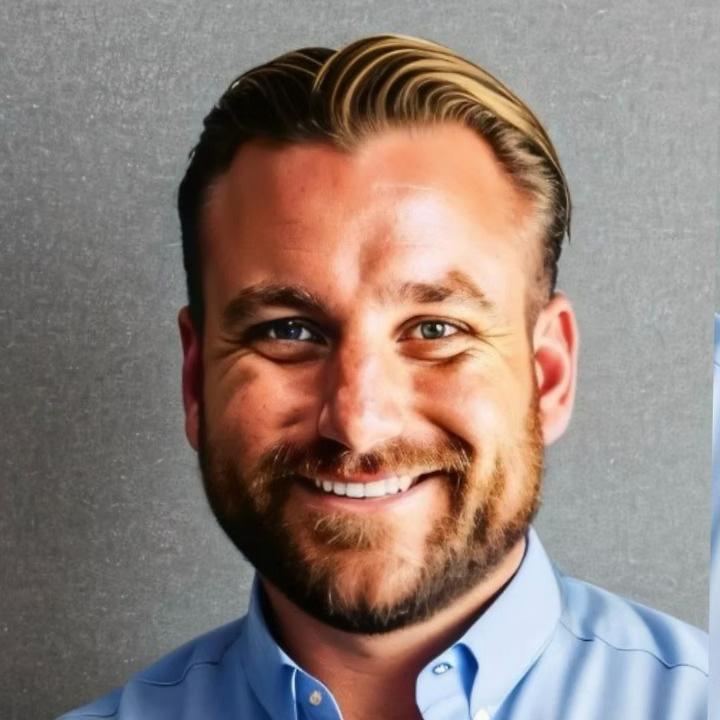
“A wise man once told me that the money’s not in the office. The money's on the street and you gotta go get your money.”
> Matthew Healy, Originator, Washington Equities Mortgage Corp.
mentioning the phrase ‘Are there any loans I can help you with?’”
The first seven seconds of a phone call can make or break a deal. Grobnagger knows this after nearly a decade of experience, but loan officers don’t have to take his word for it. Studies from the University of Wyoming School of Business have also found that’s roughly how long it takes for people to develop a first impression of someone new.
While working for Quicken Mortgage (now Rocket Mortgage) between 2009 and 2018, all of Grobnagger’s leads were company-provided and distributed from what he called a “hodgepodge” of lead
sources. Some came from lead publishers and aggregators while others came directly from Quicken (now Rocket.com), along with a mix of other referrals. As a nationwide lender, those leads would be sourced from all across the country and came with little to no information about the client. Every phone call, as he described it, was a roll of the dice.
“Within a few seconds, you have to look at what the lead source is and decide what your introduction is going to be, depending on where it came from,” Grobnagger said.
Over time, he became familiar with the demographic of more popular lead sources like LowerMyBills.com, where most people are looking to do exactly what the website name implies, either with a loan modification or a refinance. In such cases, it’s better to open the call by getting right to the point.
His opening line would go something like this: “Hey, my name is Nick, I got your information from LowerMyBills.com and I see you’re looking to refinance in this area.”
Open-ended questions are expected, but Grobnagger stresses not to pry for all the borrower’s information during the first phone call. Not only does it come off aggressive and untrustworthy, but the vast majority of leads come from people who have just started to think about the homebuying or refinancing process.
“The whole goal of the first call is getting them to trust me,” he said, which he does by explaining the value he brings to the consumer. As a mortgage broker, he often explains how they have the ability to shop multiple lenders and nearly every program on the market.
Some call centers provide loan officers with scripts to keep their conversations speedy and productive. They would list the essential questions to ask, such as the person’s income, employment history, and if they have any debt. But, Grobnagger recommends using those scripts as loose guides and customizing them to be more conversational.
“There's some stuff that you just have to ask, but that's not what gets you the loans,” he explains. “What gets you the client is not asking the questions that
everyone else is asking. What else are you doing on the phone? How are you different from everybody else? That's thinking like a top producer.”
But going off-script doesn’t mean quoting interest rates on a hypothetical mortgage. He adds, “I would never quote or even ballpark figures on interest rates on the first call. You're just gonna end up shooting yourself in the foot.”
There are plenty of times conversations end pleasantly, simply because the person wants to get off the phone. That’s why Grobnagger advises that it’s better not to assume a lead is fully acquired until their documents are sent. Once they have some skin in the game, he said they're usually pretty committed.
Although a box of donuts provides an easy entryway, there are no miracle strategies for getting someone’s business. Loan officers can’t expect to break the ice with a hammer. Most often, relationships are formed gradually, a fact that Healy says is also true for loan officers who take a direct-to-consumer approach.
Healy mainly works with first-time homebuyers and real estate investors — a demographic that typically requires more attention and hand-holding. Those borrowers likely won’t be satisfied working with call center loan officers who are motivated to work quickly to increase their sales volume.
“When you're speaking as a first time home buyer, you're like a bull in a China shop,” Healy said. “You're relying on your aunt and uncle, your mom, your dad who are screaming at you throughout the process. It feels so overwhelming because they don't teach this process in school.”
It requires much patience to offer a hand-holding type of service, especially when juggling other clients. First-time buyers and new investors tend to ask more questions and desire more of an indepth explanation on certain aspects of the mortgage process.
It's also easy to get frustrated when the client repeats their questions after it's been explained four different ways.
In such cases, Healy says the problem is not the borrower’s competence — it's how the loan officer is communicating with them. It can take months for a newly licensed loan officer to adapt to their job, so the average borrower and first-time homebuyer is bound to have a difficult time understanding.
“I came up with a way of dumbing it down without losing the integrity of the answer,” Healy said. “I also have a policy with all my first-time homebuyers where if you don't know something or don't understand something that I say, don't ‘yes’ me to death. Even if you hang up the phone and you go, ‘Oh, I have a question for Matt, but I don't wanna bother him.’ No, call me right back, because I want everyone to walk outta here with a Ph.D. in mortgages so they feel confident about purchasing a house.”
Patience and solid communication skills are the essential ingredients to gaining repeat business. But newer loan officers might run into trouble when they don’t have an answer to a borrower’s question. Suddenly, the loan officer is taken off guard and fumbling to come up with a response, which can rapidly deplete the borrower’s confidence in them.
The biggest mistake Healy warns loan officers against is lying and assuming what an answer will be. “Because if you give misinformation and it comes up and it bites you in the butt, then you look like an idiot,” he said.
Instead, he suggests that loan officers tell their borrower that they’ll get back to them on any questions they can’t currently answer. For example saying, “These guidelines change all the time, so I’ll get back to you on that,” or “My underwriter is really quick, so I can get her on the phone and get back to you as soon as possible.” Then move the conversation along by asking “What's your next question?”
Unlike call center originators who get a fresh supply of leads every day, a boots-on-the-ground originator is focused on developing relationships with referral partners, including real estate agents and financial planners, to gain
repeat business. While losing potential clients due to a lack of confidence isn’t as damaging as accidentally misinforming them, it can end up hindering a deal and make it difficult to maintain those referral relationships long-term.
“Ninty-five percent of the time you're either not going to get someone. Or, if you do get someone on the phone, they're going to be upset,” Grobnagger said.
It should come as no surprise that most people don’t respond kindly to unsolicited telemarketing calls. Even though lead publishers are required to ask for an individuals’ consent before sharing their financial information to lenders and other solicitors, a number of website visitors don’t read the fine print before consenting. Because internet-purchased leads are typically sold to multiple other lenders, Grobnagger would find that he was not the first lender to call the prospective clients.
“You should be surprised if you pick up the phone and someone's polite to you,” he said.
It’s a job that requires thick skin, but Grobnagger eventually discovered that he was a lot more successful when he was honest with consumers about how he got their information.
“I found a lot of success with just calling out the situation. I know you probably didn't expect to be getting a phone call, but that doesn't mean that we can't take a look at your situation and possibly help you out,” he said. “It’s like calling a spade a spade.”
When someone does pick up the phone, loan officers must be ready to make it worth the customer’s time. Out of 100 leads, Grobnagger estimates that only 2 or 3 typically convert into fully funded loans — “Maybe five if you're really good,” he adds.
Likewise, CoreLogic’s data team estimates the average conversion rate on internet-provided mortgage leads to be between 2% to 3%. That’s a low conversion rate compared to most bootson-the-ground originators like Healy, who’d have to spend a lot of money buying donuts before making a successful
sale. But being hooked to an autodialler allows call center loan officers to brush through hundreds of phone calls per day, creating a wider range of opportunity for new originators to generate business.
The “Boiler Room” experience is simply a numbers game. Eventually, the right customer will pick up. It’s a grind, but Grobnagger says that most loan officers aren’t working overtime or even a full 9 to 5. After gaining some experience, he’d typically spend just four to six hours per day on the phone.
Conversations can go south quickly, but there are people who are patient enough to see if the caller can help. Still, loan officers must make their point quickly.
“Can you help me out or not? And if you can say yes, then they'll listen to you. But if you can't say that within the first couple minutes, then the conversation's done,” Grobanger said. “Kill them with kindness, ask open-ended questions, and see where the conversation goes from there.”
Most originators are utilizing both a cold calling and a boots-on-the-ground sales approach to avoid becoming dependent on one or the other. Even if new loan officers find success using one approach, there may be new conditions or regulations that may force them to switch tactics. For example, new TCPA regulations could have an effect on lead supply that most call centers rely on, and unforeseen events like the COVID-19 pandemic could prevent in-person encounters.
That’s why both Healy and Grobnagger recommend that loan officers build up their skills to diversify their lead generation strategies and become a more dynamic salesperson overall. So, when loan officers are considering which sales approach to master first, they must evaluate whether that strategy or work environment provides them opportunities to progress their careers further.
Originators don’t need to work in a call center to start cold calling clients

“Within a few seconds, you have to look at what the lead source is and decide what your introduction is going to be.”
> Nick Grobnagger, Co-Owner, Green Home Loans
and referral sources, but Grobnagger highlights some of the benefits those lenders offer to new originators.
“You may talk face-to-face with four people per month, whereas in the call center environment, you're talking to like 40 people a day. So you're just going to get a lot better a heck of a lot quicker,” Grobnagger said.
Another benefit of the “Boiler Room”: call center originators don’t have to waste their Saturdays going to an open house just for four people to show up. According to Grobnagger, he can follow up on 150 leads in the same amount of time and likely walk away with a few new clients. However, he notes it can be challenging to take the training wheels off, adding that “a lot of people struggle when they leave that environment
because that's all they know.”
Loan officers’ best option for progressing out of the call center environment is by searching for a lender or brokerage that can provide some support in terms of training or leads. Options are scarce, but his Green Home Loans is one of the few broker shops to offer a hybrid approach where loan officers can receive a few leads per day to help build their referral network.
“We buy leads, we help them, we give them structure,” Grobnagger explains, describing the company’s culture as “a little bit of the call center environment, but we're not like breathing over their shoulders. There's autonomy.”
But for anyone who struggles to articulate themselves quickly or are simply averse to starting out with a “Boiler Room” experience, then their best bet may be starting out with a bootson-the-ground approach as Healy did.
“Cold calling is an art by itself. Then some people are really good at cold calling, but they're horrible in person,” Healy said. “I was always a people person. I definitely strategized better face-to-face because I can see their reaction.”
Ultimately, both Healy and Grobnagger suggest that new originators step into whichever environment they feel most comfortable in — but warn that whichever approach they take will entail its own challenges. If you’re pounding the pavement, the hours are long and the leads are up to you; if you’re dialing and smiling at a call center, the grind could get to you.
No matter which path new LOs pick, though, there’s no way to avoid hard work in the mortgage industry, especially for those just starting out. They’ll succeed only if they're committed.
“People don't like the call center environment and they may say it's because ‘I don't like to be micromanaged.’ I think it's more about the grind,” Grobnagger said. “I think the truth of it is that people don't like doing the hard work. [But] if you can do those things, then you get better over time and it becomes easier and easier. You just have to not be afraid to do the work.


The Mortgage Women Leadership Council is a vibrant, fastgrowing community with over 500 members in its first year, now the largest women-led network in the mortgage industry. Backed by Mortgage Women Magazine and trusted industry leaders, MWLC is a welcoming space where experience, inclusion, and innovation come together to empower growth.

As a valued member, enjoy these benefits:
Exclusive Subscription To Mortgage Women Magazine – delivered to your inbox and members-only portal
Live & Virtual Events – including the Mortgage Star Conference for Women, regional meetups, and educational webinars
Working Groups – collaborative spaces focused on career advancement and leadership, innovation & technology, marketing & branding, and much more.
Women Who L.E.A.D. Mentorship Program – An empowering initiative that pairs experienced professionals with emerging talent to foster guidance, growth, and meaningful connection.
Editorial & Awards Opportunities – share your voice, publish articles, and gain recognition through Mortgage Star Award
Become a member today.
Join us and be a driving force in creating a more inclusive and thriving mortgage industry. Together, as a united community, we believe we can make real change.
Enjoy 1 year of your individual membership free! Use code MWM25


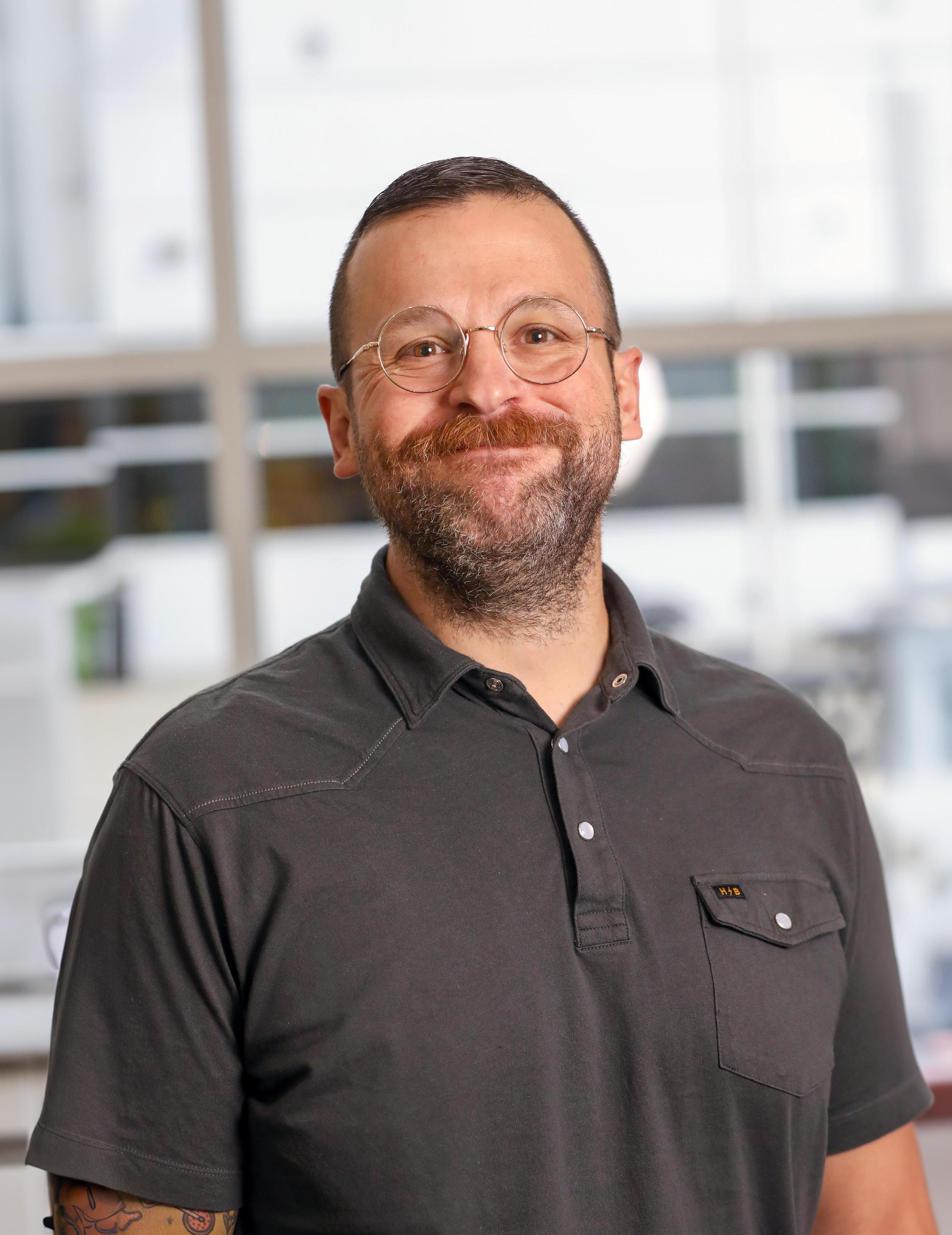
How faith, empathy, and grit shaped David Kakish’s success
BY ANDREW BROOKS BAKER | ASSOCIATE EDITOR, EMERGING LO MAGAZINE
For nearly seventeen years, David Kakish served as a pastor, devoting his life to guiding congregations and counseling individuals through life’s ups and downs. He gave countless sermons, shepherded people in times of both heartbreak and celebration, and developed a deep understanding of the human condition.
However, a moment arrived when he felt he had given all he could give. It was a season of transition that would eventually lead him into a completely different arena: the world of mortgage lending and sales.
Today, David is in the top 1% of mortgage professionals nationwide, a feat he accomplished in less than two and a half years — an especially impressive statistic given that he started just as interest rates were on the rise in mid-2022.
Yet David is quick to point out it’s not a tale of overnight success or a single secret strategy. Instead, as he explains it, it’s the result of embracing rejection, consistently doing the daily grind, and placing people above profit.
When David left ministry, there was no scandal, no rift within the congregation, and no big career meltdown. Rather, he and his family found themselves at a crossroads. They had spent well over a decade in pastoral service, and David describes their departure as wanting to “write our own ending” before any bitterness or burnout set in. It was not a falling apart but a thoughtful exit — a decision that involved prayer, introspection, and an honest conversation with his wife about what the future might hold.
recalling how he considered different lines of work that relied on relationshipbuilding and financial management. He landed on mortgages, ironically during a period when interest rates had jumped from 3% to 6% — a less-than-ideal time for a brand-new loan officer. Still, he dove in headfirst, capitalizing on his passion for problem-solving and helping others.

was just 15 years old. He worked in a call center, selling appointments for windows, doors, and vinyl siding. During his shifts, which ran from five to nine o’clock in the evening, he had to phone strangers, endure hang-ups, and constantly chase the next “maybe” that could turn into a “yes.” In that high-rejection environment, he developed a sort of mental toughness that would later prove invaluable: “No is just a pathway to yes,” he says. He also highlights the importance of having a personal identity bigger than work. For David, his faith is that anchor. When people define themselves solely by success, they never feel they have “arrived” — the next target always moves higher, turning a one-time ceiling into tomorrow’s floor. By rooting his sense of self in faith and family, David finds it easier to weather the inevitable storms, rejections, and dry spells that come with a sales career.
The future, as it turned out, would lean on both his financial acumen and his empathetic skill set, combining them into a new path. “I knew I was good with finances and good with people,” he says,
David’s rapid ascent might make people assume he had an easy road or discovered a “hack” to success. He is the first to dispel that myth. He worked relentlessly, cold-calling real estate agents all over the country — sometimes in states where he was not even licensed, just to refine his pitch and educate himself on the common questions and challenges. The willingness to embrace the grueling process of trial and error is something David views as essential to any form of growth.
He recalls his very first job when he
Drawing inspiration from Charlie Munger’s “inversion theory,” David systematically asks himself how he could fail, then takes steps to avoid that fate. “Sometimes it’s easier to know what not to do than what to do,” he says. In practical terms, that means scrutinizing his mortgage business regularly, searching for cracks that could break the entire structure. If top-line growth is the goal, he envisions the missteps that might derail it — poor communication, sloppy record-keeping, losing empathy for clients — and ensures he and his team protect against those stumbling blocks.
Yet David’s not just about caution and defense; he also invests energy in designing a positive experience for every homebuyer and referral partner. He likens the mortgage process to a “financial enema,” something most people dread but need in order to get the home they really want. “People don’t want a mortgage; they want a house,” he quips. This insight helps him center the experience around human connection. Instead of merely collecting
“NO IS JUST A PATHWAY TO YES… YOU HAVE TO OUTWORK YOUR OWN SELF-DOUBT TO REACH IT.”
documents and doing calculations, David and his team automate key updates in a friendly tone, send celebration messages with confetti GIFs, and offer guidance that goes beyond just monthly payments and interest rates.
Technology is a mainstay of David’s method. From personalized text messages to streamlined document collection, he automates as much as possible. But what stands out is his nearobsession with ensuring those automated touchpoints retain a personal, human warmth. In David’s eyes, “automation” need not equal “impersonal.” He has found creative ways to combine softwaredriven efficiency with the sincerity of a warm handshake, even in a remote or digital setting.
For example, he sends listing agents text messages that start with, “Hey, no need to call back,” a small tactic that effortlessly preserves time for both parties. By the end of each transaction, an impressive percentage of listing agents seek him out for future deals, even though he never once scheduled a live phone chat. In a fast-paced market where time often determines who wins an offer or closes on time, these microefficiencies compound. Add to that the sense that David understands people are not just “files” but real families making a life-changing decision, and you get a formula that clearly works for him.
David also believes wholeheartedly in giving away knowledge, whether it’s to a client, a real estate partner, or even a rival loan officer. He recounts how he once spent an hour of his day walking a competitor through structuring a file that had been incorrectly denied. For David, doing the “right thing” matters more than hoarding information or scoring immediate wins. “If it’s the right thing to do, you do the right thing,” he states, reflecting on his deep-rooted sense of faith that ties personal integrity to professional conduct.At times, however, he battles frustration because some
people approach him with a sense of entitlement: they want a shortcut, a “silver bullet,” or that single “hack” that will deliver quick results. David’s advice? “Work hard every day at all the things that other people don’t want to do.” To him, there’s no magical formula. Instead, it’s about consistently showing up, testing, iterating, and never forgetting that behind every question, transaction, or conversation is another human being.
When asked about where he sees himself in five years, David’s vision revolves less around the next big production milestone and more around spending time with his wife and children. He knows that chasing success can become an idol in itself, especially for a results-driven person. He often repeats a principle at home: “Saying yes to something is inevitably saying no to something else.” If the “yes” is work, that inevitably means less time with the people he loves. Hard work is essential, but endless striving with no boundaries can fracture what matters most — family and personal well-being.
David’s deeper philosophy is this: “We were blessed to be a blessing.” He sees every dollar, every resource, and every skill set as something entrusted to him to steward responsibly, not to hoard. Quoting theologian John Wesley, he references the idea that everything we try to hold on too tightly slips through our fingers. This perspective informs his commitment to mentorship, even if it means “giving away” some of his competitive advantage. True success, in his eyes, is measured in impact and relationships, not just in quarterly returns.
Mentorship stands as both a pillar of David’s personal journey and a central tenet of how he hopes to leave his mark. Early in his life, he benefitted from individuals who offered guidance and support. Whether it was a manager teaching him phone sales at 15 or seasoned professionals in the mortgage industry
who answered his questions when he was brand new, those gestures shaped his trajectory. Now, he wants to pay it forward.That said, David is also candid that not everyone seeking mentorship truly wants to roll up their sleeves. “They want the steps, but they might not want the process,” he observes. For those genuinely looking to learn, he generously invests his time; for those seeking a quick fix, he offers the tough-love truth: real growth demands consistent effort, resilience, and a willingness to learn from every misstep.
Ultimately, David’s story is about weaving faith, empathy, and good old-fashioned hard work into a formula for success in an industry that can often feel purely transactional. His belief that “empathy still works in 2025” undergirds everything he does, from messaging new clients in a fun, celebratory way, to guiding a competitor through a complex file, to standing firm in his convictions about family time. At a glance, one might see a top-producing mortgage originator, but just beneath the surface is a man driven by the values he once championed from the pulpit: loving one’s neighbor, putting people first, and remaining humble enough to realize there is always something new to learn.
It is this blend of personal grounding, willingness to fail, and dogged refusal to be outworked that fuels David’s remarkable accomplishments so far. And in his mind, the future is not about bigger numbers alone — it’s about forging stronger relationships, keeping his priorities in line, and remaining openhanded with knowledge and opportunities. In short, he’s proving that you can consistently show love to your neighbor even while crafting a highly efficient and profitable enterprise. If there is any secret ingredient here, it may just be that balance: wholeheartedly pursuing success yet always remembering the simple, enduring truth that people matter more than profits.






BY KATIE JENSEN | ASSOCIATE EDITOR, EMERGING LO MAGAZINE
Even the best of us envy those who achieve success quickly. It’s an absolute gut punch if that success comes from someone young with little to no experience in the mortgage industry while so many others struggle to get by. But few can argue Tiffany Dawson, senior loan officer for New Leaf Funding, doesn’t deserve it.
A California native, Dawson, 36, joined the industry as an originator at the start of 2022, and was able to complete 24 loans within her first year — a notable feat considering how turbulent that market was, with interest rates shooting up and inventory bottoming out. That sudden change shook the earth beneath most originators’ feet, but not Dawson’s. In recognition of that, after less than a year in the industry she was promoted to senior loan officer by her sales manager Stacy Brian.
“She’s better than 97% of the loan officers currently in our office,” Brian said. “She came in during a time when the market was slowing and, you know, she never had anything handed to her — she’s hungry. Other loan officers get complacent, because doing refinances is easy. She’s a great example of what to do and what attitude to take when things get tough.”
For Dawson there was an early recognition of how the market was changing.
“I knew the market was shifting,” Dawson said. “We were still in COVID, so it was going to be different than any other market. I also knew rates were going up, so the refi market was dying. That's why my focus became purchasing.”
All but one loan Dawson originated last year were purchases for first-time homebuyers. They are her target audience, because her goal is keep those clients coming back for every transaction they make until they decide to finish their portfolio.
When Dawson told her colleagues that her goal was to make six figures in her first year, they shared their doubts, likely thinking this naive woman had no idea how brutal this industry can be.
“I shocked a lot of folks in my brokerage,” Dawson said. “Some of them had to apologize because they definitely pumped some negative thoughts in my mind at the very beginning when I told them what my goal was for the year. And, you know, I surpassed some of them.”
Well, those colleagues certainly learned their lesson about underestimating newcomers, and soon others will, too.
Dawson gathered most of her knowledge about the real estate market as a young investor. She bought her first home at 22 years old, with no help from family members or friends. In today’s market, that’s pretty much unheard of, but Dawson is making this possible for her young clients as well.
“I used to cry about it. I didn't think it was possible,” Dawson
Tiffany Dawson, Senior Loan Officer, New Leaf Funding


“I shocked a lot of folks in my brokerage. Some of them had to apologize because they definitely pumped some negative thoughts in my mind ... ”
> Tiffany Dawson
said. “I would talk to a lot of homeowners, whether they were in my family or in my business circle, and just knew that it was something I had to work towards. I had to start with what I could start with, which happened to be a condo.”
Dawson purchased her first home, a condo, in Paramount City, which was not at all where she expected to live. But it’s what she and her then-boyfriend, now husband, could afford at the time, which is a lesson she often reiterates to her clients today.
“We purchased that property, lived there for a couple of years, and some people call it ‘house hacking.’ We used the FHA loan to get our first property, which then in turn became an investment property,” Dawson said.
Dawson then moved into a singlefamily home in Carson, Calif. Her tenants paid the mortgage on the condo while she covered her new mortgage. About 11 years later, she decided it was time to sell.
“The advice that I was always given with selling real estate is do not sell real estate unless you're taking that money to buy something bigger and better. So that's what we did,” Dawson said. “We made close to $300,000 in profit off of that one condo. And we reinvested in single- family homes, also in California.”
The pandemic real estate boom also did Dawson many favors. Although rates were low, many people told her to wait for the crash and pointed out the moratorium on tenants paying rent made the landlord’s job harder. But Dawson said she’s lucky she did because she’s made nearly half a million in equity from her single-family home and the garage conversions.
While she was building up her investor portfolio, Dawson was working a full-time job as an HR manager for a nonprofit, Crystal Stairs. In 2021, she had earned enough rental profit to replace her income, then jumped into being a loan officer full-time.
It was her own loan officer, Stacy Brian, now her sales manager for New Leaf Funding, who brought her into the industry in the first place. Dawson started referring a bunch of homebuyers to Brian, and eventually Brian suggested that she should become a loan officer herself. No one anticipated, however, how rapidly she would rise to success.
“The advice that I was always given with selling real estate is do not sell real estate unless you’re taking that money to buy something bigger and better.”
> Tiffany Dawson
Although Dawson muscled through her real estate investing career and now her loan officer career without much guidance, she’s determined to be a mentor for anyone else chasing that dream — even her 4-year-old daughter.
Dawson said her young daughter is very into real estate and they often go to open houses together.
“If our contractors are working, she goes up to them, calls them by name, and asks them what they're working on,” Dawson said. “Or if she knows there's a task that needs to be completed, she'll ask them when they'll be complete or when they're starting that one. So I'm training her in that way, but that's not something that I personally had.”
Working with young people is Dawson’s passion. Last year, she helped two young men, ages 25 and 26, buy a duplex, and this year she managed to finance their next property, a single-family home. This was essentially the same “house hacking” strategy Dawson used to start her own real estate investing career.
Specifically, Dawson seeks out “folks who have their head on straight,” meaning they're in a stable career, they’re ready to save money, and they have good credit — essentially, the same position she was in at 22 years old.


According to Modex, nearly half of her borrowers are FHA; all of them make anywhere between $60K to $120K a year.
“A lot of them don't have a ton of money coming into it,” Dawson said. “Credit has been all over the spectrum. I've had the low end, the high end, but they're not trust fund babies or anything like that. No one's getting gift funds. They're just hard-working people that are trying to accomplish something, and they're willing to be coachable and get to the finish line with me.”
Although Dawson did not actively seek out Black homebuyers to work with, she was delighted to find that many of them were gravitating toward her. Initially, she was just happy to be getting clients, but she eventually realized what a strong connection she had with the Black community.
Dawson suspects these homebuyers
like to work with someone who is also Black and have an easier time building trust with someone similar to them. But, another important aspect in how she gained this following, was through the education and training programs she offers to consumers.
“We're further behind when it comes to financial literacy and having wealth as a whole,” Dawson said. “A lot of that has to do with access and just overall information.”
Recently, Dawson was on an investor call and every single person on that call was Black, which Dawson was proud to see. What she was not proud of, however, was the fact that the lady hosting the call wanted $30,000 from each person to help them become investors.
“Most of the folks on there have said they had never purchased a primary home before and that they didn't have credit. They didn't have money, they were trying to figure it out, and she recommended business funding for them to be able to pay her so she could tell them how to do it. And I was like, that is crazy!” Dawson said. “So I want to help those folks who are willing and ready to learn the information, and get it for free.”
Dawson at Target and reached out to her on Instagram, saying she was very impressed with Dawson’s career and wants to be just like her when she grows up. Danielle asked what she needed to do to make that happen, and Dawson was ready to be her guide. They worked on paying off her debt, saving her money, then got her into a single-family home all by herself.
Dawson’s Instagram also gained the recognition of other loan originators, one of whom she is currently mentoring.
“I've built a pretty decent following on Instagram … and they're directed straight to my personal website,” Dawson said. “I
someone in something that you haven't experienced yourself,” Dawson said. She is currently mentoring two originators, one being a dual licensed agent and originator who does, in fact, own a home. Dawson has a whole list of topics mentees can choose to focus on, such as content creation, presence, and branding. She’s also willing to assist originators with any questions they may have, which is a big help for those who work remotely and have no one else to turn to. A few times, Dawson has even sat in on a three-way call with the originator and client to help answer questions. It’s still the mentee’s client, Dawson confirms, she’s just there to provide support.
Dawson’s mentorship program for mortgage loan originators teaches them how to get more leads, create personal brands, create content for social media, so they, too, can make six figures in a year.
Dawson also believes that being Black herself allows them to trust her. She knows exactly how those people feel; she was once a young woman trying to do something totally different, something her family has never done before. She knows what it’s like going up to someone in a suit who doesn’t look like anyone she would usually speak to and having to express all her concerns to him. It’s scary, because that person may not understand her challenges or her situation.
“So I wanted to make sure that I was a regular person,” Dawson said. “When you go on my Instagram, I'm not in a suit and tie, like I have on leggings and sweats. Like I'm a regular girl from the city.”
In fact, most of Dawson’s client base comes from Instagram (@ TiffanytheLender), where she has over 4,000 followers. One particular young lady, Danielle, formerly worked with
really wanted to focus on self-branding, especially when I first started, because obviously New Leaf is not my company. At some point I will make one, but I will still be Tiffany The Lender, under my company, not so much promoting someone else's.”
Dawson’s mentorship program for mortgage loan originators teaches them how to get more leads, create personal brands, create content for social media, so they, too, can have a goal of six figures in a year.
Unlike some sales coaches, Dawson is a successful producer and knows what the homebuying process is like as a first-timer and an investor.
“You might have loan officers or Realtors who don't really own real estate or don't really have a portfolio, and I get that people have to be in an industry to make money and get there. But I also find it difficult that you could truly lead
Even the naysayers at her own brokerage have asked Dawson for advice after seeing how successful she was in 2022.
“The refi business was ending, and folks were so used to the leads just pouring in,” Dawson said. “The folks in my office, they started coming up to me like, ‘Hey, what are you doing now? What, what's going on? What do I need to do? How can I change? How can I get this business that you have?’”
If Dawson’s success teaches us anything, it’s not to underestimate these newcomers. While everyone was stuffing themselves with refi money during the pandemic house boom, originators like Dawson were gearing up for the market shift. Now she’s on top of her game in purchases, making six figures a year, and building up a real estate portfolio that will be worth millions one day.
Although Dawson lacks experience, her hunger for success makes up for it ten-fold. Ultimately, her story proves that even newer originators who have entered the market during or after the pandemic housing boom, are as capable as anyone to reach success.
“It is going to take work,” Dawson said, “but it will pay off.”



BY ANDREW BROOKS BAKER ASSOCIATE EDITOR EMERGING LO MAGAZINE
“This is the only job I’ve ever done,” Adam says. “I graduated from Roger Williams University in Rhode Island in May 2017, and my first day as a loan officer was June 1, 2017. Right out of college, right into the business.”
Adam started at a bank in Jacksonville, Florida, learning the ropes. “That was huge,” he recalls. “They taught me the acronyms, the debt-to-income calculations — it’s a totally different language when you first begin. Then, I realized I wanted the flexibility of working for an independent mortgage company. I joined Movement six months in and haven’t looked back.”
Despite being relatively new to the field, Adam’s business grew rapidly. “I attribute that growth partly to having good mentors and partly to the timing,” he explains. “Rates were in a decent place, and then things went wild during COVID. But it also came down to really solid training and coaching from day one.”
A recurring theme among top mortgage pros is coaching. Adam is no exception — he credits his baseball background for shaping how he views practice and mentorship. “I played baseball at Roger Williams,” he says. “Baseball is a sport of failure: batting .300 is considered successful, which means you fail seven out of ten times. Lending isn’t so different. Most loan officers close about


“I may not always give the answer people want to hear … but it’ll be the right one 100% of the time.”
> Adam Dellemonico
30% of the applications they pull credit for.”
Just two months into the job, Adam invested in a coach named Scott Groves. “I didn’t have the money for it, but I knew if I had a roadmap and just did what I was told — if they said 10 calls, I’d do 20 — I’d see results. That first coach took me from zero closings a month to about 15 by focusing on consistency and day-to-day basics.”
Adam emphasizes that coaching evolves: “I still have a coach, but now it’s more business-focused. We talk [about] managing people, hiring processes, time management, and scaling. If you’re a brand-new loan officer, though? Coaching should be your first move.”
Competition fueled by numbers is a strong motivator, but it goes hand in hand with teamwork. “Baseball might be an individual sport when you’re at bat, but you’re part of a collective,” Adam says. “Same goes for mortgages: you alone can’t handle every aspect of multiple loans every single month without a supportive team.”
Today, Adam leads a robust operation. What does he look for when assembling a winning roster?
“My team has almost no turnover,” Adam explains. “I’m very cautious about bringing on someone new because one bad apple can ruin the bunch. The flip side is, if they’re not a fit, you can’t wait too long to address it. But I’m lucky; we haven’t really experienced that.”
“Everyone on the team is equal. I don’t look at it like someone’s above or below. We treat each other with respect, jump in where needed, and keep positivity high. Mortgage lending can be stressful; that culture helps keep people motivated.”
“Any time I’ve brought on someone new, it’s because I saw a bottleneck in our process,” Adam says. “I ask: if we doubled our volume, where would quality slip? Because I won’t sacrifice quality for quantity. I’d rather do fewer loans perfectly than grow too quickly and deliver a poor experience. If I notice we’re nearing that point, that’s when I hire. But I do it carefully and deliberately.”

“That’s how you eliminate the chaos — by ensuring every person knows exactly what to do and when.”
> Adam Dellemonico

How did Adam go from a brand-new LO to a multiperson team closing dozens of loans a month? He points to the power of systems — and a refusal to repeat mistakes.
“Every time we had a stressed-out teammate or a frustrated client, we did a post-mortem. Why did this happen, and how do we prevent it in the future? We wrote out what the perfect process looks like from the moment we first hear from someone to post-closing. If there’s a gap, we fix it. That’s how you eliminate the chaos — by ensuring every person knows exactly what to do and when, and that they’re communicating with the right stakeholders at the right time.”
He continues, “The mortgage process itself is fairly consistent, even though every client’s situation is unique. If you can handle the standard flow perfectly, you’ve freed up brain space to solve the tricky problems when they arise. That’s how we hardly ever deny loans.
There’s no scenario where something ‘pops up’ last minute. If it does, it means someone didn’t ask the right questions or review the right documents early on.”
Central to Adam’s success are his “four pillars.” He shares them like a personal mantra for every member of his team:
“If you don’t set expectations at every step, something will blindside the client — or the agent — or you,” Adam says. “When a client qualifies for a $500,000 purchase, I don’t just say ‘Here’s your pre-approval letter, have a great day.’ I go deeper: ‘You’re approved for up to $3,500 a month. Here’s how taxes can affect that; if taxes are X amount, you can only go to X purchase price. If it’s in a flood zone, that’s going to change. Rates could rise.’ We do the same with agents.

If it’s a rush deal and I haven’t verified all documents, they need to know it’s conditional. Surprises are what lead to frustration.”
Early in his career, Adam made a bold choice to replicate a voicemail greeting that another loan officer used: “It says, ‘Leave your name, number, and brief message, and I’ll call you back in 10 minutes or less.’ I can’t always do it literally, but people notice. They’re like, ‘Wow, I’ve never heard that from a loan officer before.’ The point is to reassure them that they matter enough for a quick response — even if I only text them first. In the beginning, I was doing double open houses every weekend, answering calls at 10 p.m. I can’t maintain that personally forever, so now my team splits that burden. But the philosophy remains: we’re available.”
“We have a rule: close the loop,” he says. “That means no one should ever have to call or email us asking, ‘Where do we stand?’ We proactively send updates so the client, the agent, and the title company know exactly what’s happening. If someone else — like an attorney or an insurance rep — is slow in sending us a document, we let everyone know we’re waiting on it. Then we bring in the agent to assist if necessary. We apply the same principle from first contact to postclosing. No gaps. If you leave gaps, you invite anxiety. That’s where the guesswork and worry creep in.”
“It sounds obvious, but I see it all the time in this industry,” Adam stresses. “I’ll do ‘rescue loans’ where someone got denied elsewhere, and the story their previous LO told them doesn’t add up. If a client truly isn’t approved, I’ll tell them directly, then spend more time explaining how they can get approved in the future than I spend on some ready-to-close files. Maybe they need to fix credit or lower debt. That’s fine. It’s a huge purchase, so the best thing we can do is tell the truth — no sugarcoating or stringing them along. The minute you stretch the truth is the minute you start losing sleep, losing trust, and jeopardizing a transaction that involves people’s biggest investment. Also, especially in a small market like Rhode Island, your reputation is everything. If you’re known for being unreliable, good luck.”
Adam’s journey from rookie LO to leading a highvolume team in under five years is a testament to the power of mentorship, thoughtful hiring, and a playbook of proven systems. His four pillars — setting expectations, being available, over-communicating, and always telling the truth — are deceptively simple but critically effective.
“I may not always give the answer people want to hear,” Adam says, “but it’ll be the right one 100% of the time. That’s how we ensure no one’s blindsided weeks into the process with a moving truck outside their door.”
For Adam, that blend of competitive drive, empathetic communication, and precise execution has set him apart in a crowded industry. Of course, there’s much more to his story — plenty of behind-thescenes tactics on managing a larger team, hitting higher volumes without sacrificing quality, and sustaining a customer-first approach.

BY ELLE MUSE | VICE PRESIDENT OF EDUCATION, MAX CLASS
WWhether you're a newly licensed Mortgage Loan Originator navigating your first loan or a seasoned professional with hundreds of closings under your belt, one truth remains the same: the mortgage industry never stands still.
Between regulatory updates, evolving loan products, shifting market dynamics, and growing consumer expectations, staying informed isn’t optional — it’s essential. That’s where ongoing, high-quality education plays a transformative role, not just for compliance, but for career longevity, professional growth, and client trust.
Let’s start with the obvious. Yes, MLOs are required to complete NMLS continuing education every year to maintain their license(s). But checking a box and truly learning are not the same thing.
Quality education goes beyond fulfilling a legal obligation. It helps you:
• Understand new regulatory developments that affect your day-to-day practices
• Adapt to changing borrower needs, products, and demographics
• Improve compliance and reduce risk for yourself and your company
• Build lasting relationships through more confident, informed service
If you're new to mortgage origination, education is your first line of defense against avoidable mistakes. Quality courses will give you the tools to:
• Interpret complex regulations like TILA, RESPA, ECOA, and TRID
• Navigate underwriting guidelines, loan documentation, and processing workflows
• Explain products clearly and confidently to clients
• Avoid ethical pitfalls and common compliance missteps And let’s not forget that a solid education foundation makes passing the SAFE MLO Exam a whole lot easier.
Continuing education might be required to maintain your license, but true growth happens when you invest in going beyond the minimum. In today’s competitive, rate-sensitive market, the most successful MLOs aren’t just compliant; they’re strategic, specialized, and always sharpening their skills.
Many mortgage professionals gain a real edge by pursuing certifications or advanced training in high-demand areas, such as:
• Reverse Mortgage Education – Understand how to serve aging homeowners and retirees with complex home equity solutions that require extra care and compliance.
• VA/USDA Lending Expertise – Learn the nuances of government-backed loans to better serve veterans and rural homebuyers who often face barriers to homeownership.
• Mortgage Compliance Certifications – Stay auditready and reduce risk by mastering fair lending laws, advertising regulations, and disclosure requirements at a deeper level.
• Broker-to-Banker Transitions – Explore how to scale your business, gain warehouse lines, and operate as a mortgage banker, rather than just a broker.
• Leadership and Team Management – For experienced MLOs looking to move into branch management or mentorship roles, leadership training can prepare you to guide teams and grow production responsibly.
• Sales Development Courses – Refine prospecting techniques, overcome objections, and create consistent sales processes that increase your close rate, which is especially valuable in today’s tighter markets.
• Social Media & Digital Marketing Certifications – Learn how to build a personal brand, grow your referral network, and generate leads through Instagram, YouTube, LinkedIn, and beyond.
• AI and Mortgage Technology Training – Embrace automation tools like CRMs, lead scoring platforms, loan origination systems (LOS), and AI-powered chat to increase efficiency and enhance client experiences.
• Multilingual or LEP Borrower Communication Training – Learn how to better serve Limited English Proficiency (LEP) clients through cultural competency, translation tools, and inclusive communication.
• Non-QM & Investor-Focused Lending Programs –Gain confidence working with real estate investors, business owners, and unconventional borrowers who need creative lending solutions.
These aren’t just “nice extras.” They’re ways to differentiate yourself, close more loans, and grow your income. In a market where leads are harder to come by, education is one of the few tools entirely in your control.
These types of courses can open doors to higher-earning roles, more closed loans, supervisory positions, or niche markets. More knowledge is essential to advance and maintain relevance. LOs need to diversify!
Well-educated loan officers don't just process paperworkthey guide borrowers through one of the most financially and emotionally significant decisions of their lives. That level of responsibility requires more than just knowing the rules; it also requires understanding the consequences. It requires understanding the “why” behind the rules and being able to explain them clearly and effectively.
When you can confidently break down complex concepts like escrow analysis, APR calculations, or QM guidelines, you earn trust. When you can calmly explain why a document is required or how underwriting decisions are made, you reduce anxiety. That kind of clarity is rare and powerful.
Borrowers don’t want someone who just hits “send.” They want a professional who knows how to anticipate issues, explain their options, and keep the process moving smoothly. That kind of professionalism is developed and derived from education and experience.
The result?
• Better reviews from clients who felt supported, not just sold to.
• More referrals from realtors and past borrowers who trust you with their business.
• Deeper loyalty from clients who return to you for their next home, investment property, or refinance. In a competitive market, your knowledge isn’t just a tool. It’s your reputation — and that’s something that no algorithm or automation can ever replace.
Given the regulatory environment that we work within, the cost of falling behind isn’t just missed opportunities. It's a real, measurable risk. Mortgage regulations change constantly, and staying current isn’t a “nice to have”, it’s a non-negotiable part of being a licensed professional.
An MLO who relies on outdated knowledge or skips continuing education doesn’t just make mistakes. They also open the door to serious consequences, including:
• Fines or license suspension from state regulators or the CFPB for violations tied to disclosure errors, advertising missteps, or compliance gaps.
• Lawsuits from borrowers who claim misinformation or unfair lending practices. Even if unintentional, ignorance won’t protect you in court.
• Loss of employer trust - or your job altogether - if you’re seen as a compliance risk or liability to the company.
Reputational damage that can follow you across states via NMLS Consumer Access, affecting future employment or licensing opportunities.
In a licensed profession, an LO's reputation and license are their currency. Protecting them isn’t about luck. It’s about knowledge. Quality education is the most affordable and empowering form of investment an LO can make. It not only helps them avoid costly mistakes but also gives them the confidence to act proactively, rather than reactively, in a high-stakes industry.
Learning is the heart of lending. The mortgage industry is part finance, part compliance, part service — and it's constantly changing. Whether you're issuing your first loan or your thousandth, ongoing quality education ensures you’re ready for whatever the market brings next. Successful MLOs always keep learning.




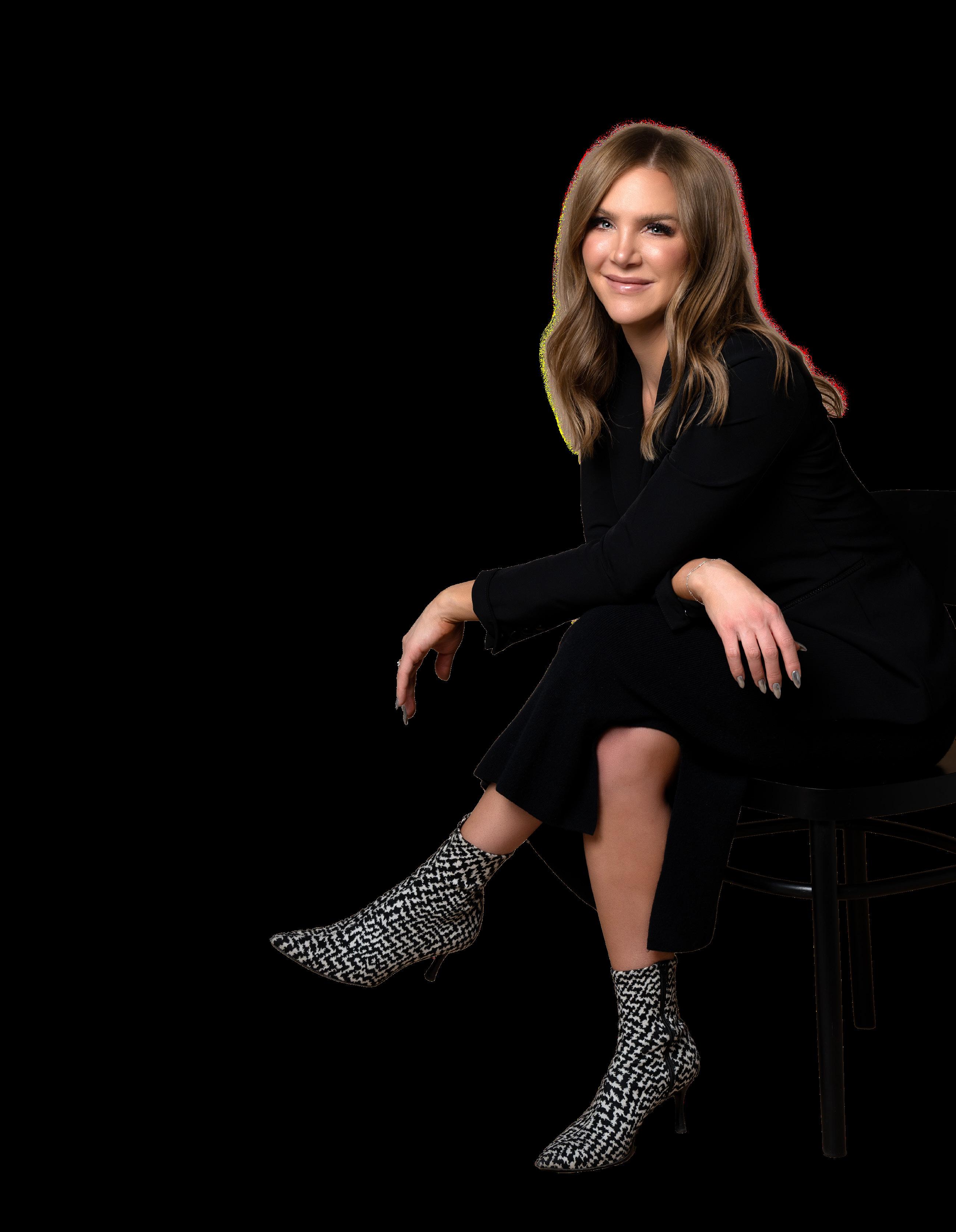
Introducing MaxClass, your new premier provider of continuing education.
We’re not just bringing you a lecture. We’re bringing you the fuel to spark your competitive fire, the plan to win the game on the merits, the confidence to know the rules and master them.
We’re MaxClass, and we’re where loan originators go to put their career in high gear.
— LaDonna Lockard, CEO

BY KATIE JENSEN | ASSOCIATE EDITOR, EMERGING LO MAGAZINE
Some may call him a dreamer, and others a visionary, but one thing’s for sure: Fernando Corona is a gambler. Five years ago, the now31-year-old self-starter abandoned a six-figure salary at Omega Engineering in pursuit of his entrepreneurial dreams — or more specifically, “To build a multimillion-dollar company.”
“I remember when I quit,” Corona recalled, “I imagined myself drinking piña coladas at a resort in Mexico while working from my laptop, making a lot of money.”
Corona began to form lofty goals shortly into his professional career after rubbing shoulders with one too many billionaires. He had seen and touched an unfathomable amount of money between his time working as a product marketing specialist and, previously, a strategic account manager for Valin Corporation, overseeing companies like Tesla.
Corona admits that, at 26 years old, he was “in a good position,” but ultimately felt unfulfilled.
“I didn't like that my job limited my earning potential,” he explained. “I thought that if I transitioned to a sales job, I might just end up in the same situation.”
Corona hit a crossroads when he was told he was being considered to lead a new division of the company. With the expectation he’d grow the division to $20 million in five years, Corona requested a bonus structure — but was denied. “I didn’t like that,” he stated emphatically. So he quit.
“I basically made a pact with myself … ‘Do you think you could figure out a way to make more money than you could here?’”
Corona threw himself at the challenge, which led him down a five year path involving multiple failed startups and $400,000 of debt that’s still being repaid.
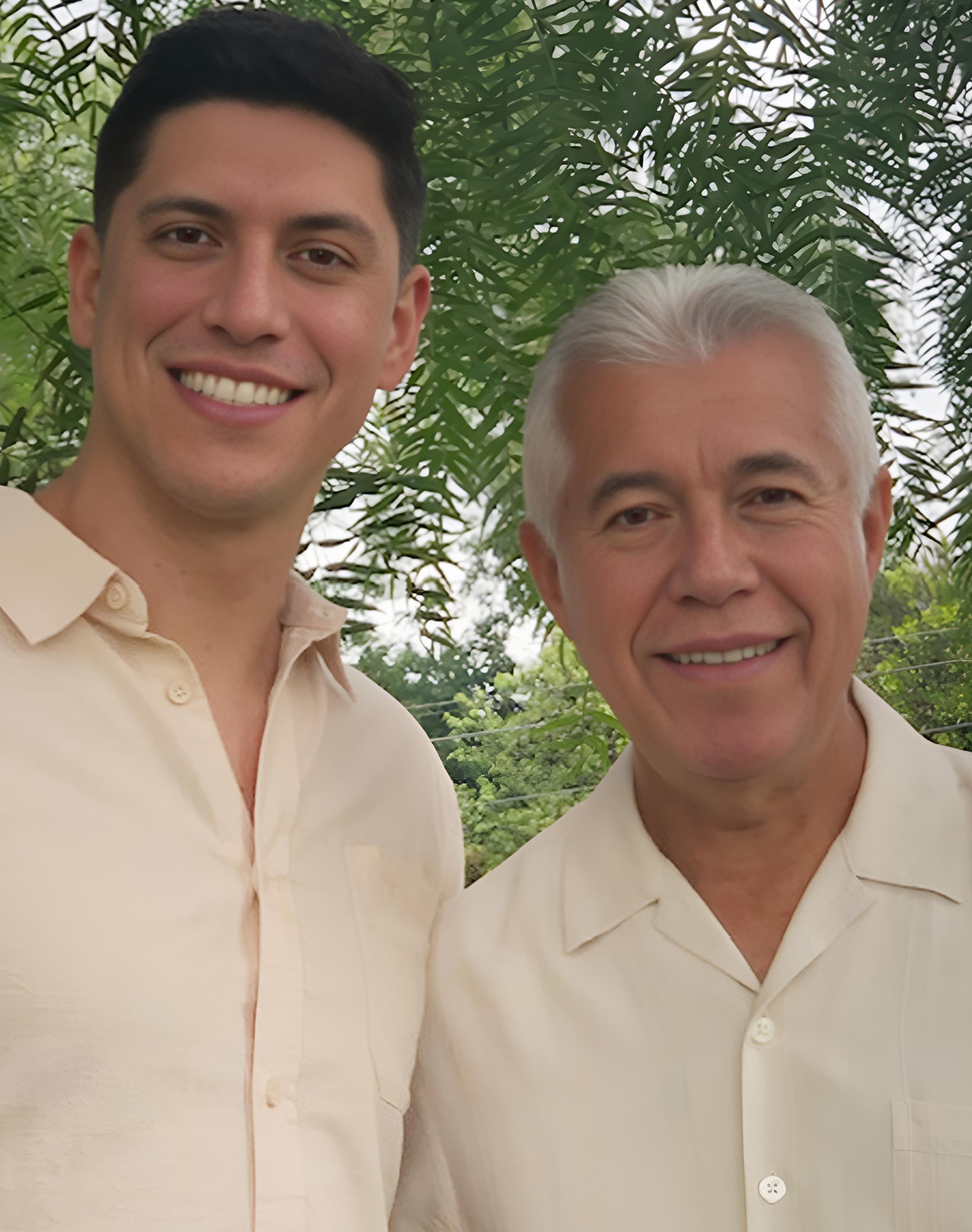

“I had a good belief in myself,” Corona said. “But maybe it was a little — what's the word? Naive?”
Fast-forward to today and we find Corona leading a 12-person team at his company, Remote Lender. Now a mortgage broker specializing in DSCR and hard money loans, Corona has generated nearly half a million dollars in revenue and netted almost a quarter of a million in profit — all within six months of operation. One can’t help but wonder, how did he get so far, so fast? The answer, as it so often is with success stories: failure, resilience, and perseverance.
To sip cocktails on a beach in Mexico and simultaneously run a multimilliondollar business, Corona knew he’d have to either automate or delegate all the labor involved. Fortunately, he developed this skill when he founded his first company, Remote Helper, in 2019. The international outsourcing business connected small U.S. business owners with affordable labor from countries such as Venezuela, Nicaragua, Kenya, the Philippines, and India.
“From the Philippines, you can probably get an administrative assistant for $3 an hour,” he explained.
Hard-won wisdom was all Corona gained from his first venture, though. Within six months, the business generated just $300 in revenue, depleted his savings and caused him to

rack up $20,000 in credit card debt. “Any confidence I had was shattered,” Corona recalled. “That was my first true taste of failure.”
Undeterred, Corona decided to develop multiple income streams to safeguard his investments. As a marketing consultant for AFC Consulting, Corona would advise companies on lead generation strategy using LinkedIn. Smiling, he recalled how he’d take Zoom meetings with “CEOs of financial advisory firms that had billions of assets under management” not from a corner office, but from his childhood bedroom.
On top of that, he launched a dropshipping business and entirely outsourced the labor to generate passive income. Drawing from his experience recruiting international workers, he trained virtual assistants in the Philippines to manage the operations. He also began recruiting for hedge funds and investing in cryptocurrency. By 2021, Corona had purchased two rental properties that also produced steady cash flow.
“I achieved a passive income of $10,000 per month without doing a ton of work,” he said. “I was sitting on top of the world, thinking I'm the coolest kid on the block. Then, in 2022, four of the five income streams — everything but real estate — collapsed.”
Corona found himself faced with a series of setbacks: the hedge fund went under, causing him to lose about $400,000 of his

and investors’ money that he’s still paying back today. His cryptocurrency investment crashed; Amazon and Walmart shut down his dropshipping stores; and LinkedIn cracked down on his lead generation strategy, forcing him to leave his marketing consulting job.
“The majority of the income I had created in those two and a half years just washed away,” Corona lamented. “I think it stemmed [from] trying to take shortcuts … and so I didn't really think

about sustainability. I just thought [about] how do I make this $10,000 as quickly as possible?”
The only enduring investments Corona had made, thus far, were his two rental properties. With them — and his other greatest asset, his unwavering faith in himself — Corona began to forge a new path forward.
Although his father, Gustavo Corona, had been a mortgage broker for over 30 years, Corona’s decision to pursue a career in the mortgage industry was gradual and done on his own terms.
While Gustavo never pressured his son to follow in his footsteps, he couldn’t help but share advice once he entered the industry. “When we talk shop, I always mention to him that we are here to provide a service and find solutions for those in need,” Gustavo said. “If we provide service with integrity and honesty, business will come to us.”
Since Corona had experience working with different types of investors, as well as being a real estate investor himself, a
private lending niche made sense. Plus, he discovered a nifty fact about DSCR loans that made it a lot easier to get his start as a newbie: In 35 states, originators can broker DSCR and hard money loans without needing an NMLS license. “You can broker DSCR loans and hard money loans with an LLC as long as you have an LLC and ask the lender if they have a business purpose channel for brokering loans without an NMLS license,” Corona explained.
Investors with an LLC can borrow money on behalf of their LLC but only for investment properties. Lenders such as Carrington Mortgage, Deephaven, Loanstream, and Velocity offer Business Purpose loans on their websites that don't require originators to be licensed in certain states.
In a lackluster housing market, many might think new originators should try every type of loan, especially conventional loans. However, Corona chose to focus on mastering a few loan products to gain a competitive edge. “Most of the people I networked with didn’t really know about DSCR or hard money loans,” he said. “But I was an investor myself before becoming a loan officer.”
As a brand new originator, Corona admits it can be tempting to do a few conventional loans on the side or try out new products, but he has larger goals to focus on.
license, Corona closed his first DSCR loan. Emboldened by that success, he launched Remote Lender in early 2024 and hired a few employees; production initially started with three to four loans but quickly accelerated. Within three months, Corona closed 60 loans, including 28 in one month. Remarkably, about 90% of the loans he’s closed are DSCR.
Although Corona felt confident stepping into the mortgage business, he admitted, “I did not think we would be where we are today in such a short period.”
In hindsight, Corona recognizes that each of his failed business ventures contributed to his current success. His experience in
which makes it possible to close 60 loans in three months with fewer leads and legwork.
“What I like about DSCR loans is that I didn’t close loans for 60 different people. We had one borrower do nine loans with me, and another do four. Many are doing two purchases and two refinances. They use money from their refinances to fund additional purchases, which is the best part. I don’t need 20 clients to provide me with loans each month.”
Even his first company, where he hired remote employees for U.S.-based firms, proved vital. It gave him the confidence to recruit his offshore team. “There's no way I could afford U.S.-based labor as a small business owner,” he said.
“The end goal or vision is … in the multi-millions.”
“We're talking about millions — we’re not talking about tens of thousands. If I wanted to do conventional loans and [make] tens of thousands, we could do that today,” Corona said. “But that's not gonna get me to where the end goal or vision is, which is in the multimillions.”
While Corona employs a different strategy than his father, who offers a variety of loans, Gustavo believes in his son's potential. “His vision has always been to make the investor’s experience seamless and less stressful,” he said. “Despite all his successes and failures, I can proudly say he’s on the right track.”
In June 2023, just two months after finally receiving his federal NMLS
> Fernando Corona, owner and CEO, Remote Lender
lead generation as a marketing consultant gave him a solid foundation for generating business in the mortgage sector, inspiring his “one-to-many” principle.
Rather than trying to build trust with multiple prospective clients, he focuses on key figures in the investor community who already have established networks. “I was methodical about identifying who has an audience I can connect with,” he said. “If I know you’re an investor and you learn from a guy above you, [then] that guy is probably speaking to a couple hundred other people just like you. Instead of just building my relationship with you, I’ll explore your network.”
Corona also shared his appreciation for the repeat business in the investor market,
The first person he hired for Remote Lender was Marie Brion, his senior processor from the Philippines. “I’ve never seen a mortgage company grow so quickly,” she noted. “Just two months after licensing, we hit our goal of closing three to four loans per month, then we ramped up to five or six, and eventually to 20 loans per month.”
Brion initially had more experience in the mortgage industry than Corona, having worked as a processor for U.S.-based companies before finding Remote Lender on a popular job search site, onlinejobs.com. “I closed 10 loans with her in a month within my first five months as a loan officer,” Corona said. With Brion’s help, Remote Lender generated nearly half a million in total revenue and almost a quarter of a million in profit in just eight months of operation.
Though Corona still has a way to go to achieve his dream of owning a multimillion-dollar business, the idea now feels far less naive than it did when he walked away from Omega Engineering. The goal is a lot closer now, and his resilience and perseverance in the face of failure is the how and the why. Call him a dreamer, a visionary, or a gambler, you can’t argue with results — Corona’s bet in himself is paying off.

Connect and learn from the very best in the business. Upcoming Originator Connect Network events you don't want to miss.
AUGUST 14 — AUGUST 17, 2025
Las Vegas, NV | www.originatorconnect.com
OCN modestly presents: The greatest mortgage conference in the known universe. Originator Connect returns to Las Vegas this August for another fantastic, session-packed event. It's THE event you won't want to miss.
SEPTEMBER 4, 2025
Dallas, TX | www.txmortgageroundup.com
The Lone Star State’s top gathering for mortgage pros. The lineup of engaging events centered around networking, skill-building and having a great time with your peers. The Roundup is so big, we have to do it twice!
SEPTEMBER 10, 2025
California Mortgage Expo
Oakland, CA | www.camortgageexpo.com
The mortgage industry is going through a significant change. For mortgage origination professionals, it's a struggle to keep on top of all the changes, and to keep your sales strategies and marketing initiatives at their peak. You need to keep your pipeline filled, and you need the tools and directions to stay profitable, efficient, and effective.
OCTOBER 7, 2025
Colorado Mortgage Summit
Denver, CO | www.comortgagesummit.com
Join us for an incredible lineup of educational sessions, business opportunities, and networking events curated specifically for the entrepreneurial men and women of the Colorado mortgage industry.
NOVEMEBER 11, 2025
California Mortgage Expo
Pasadena, CA | www.camortgageexpo.com
We've brought together the best in the business to create a top tier event specifically designed for mortgage origination pros.
























